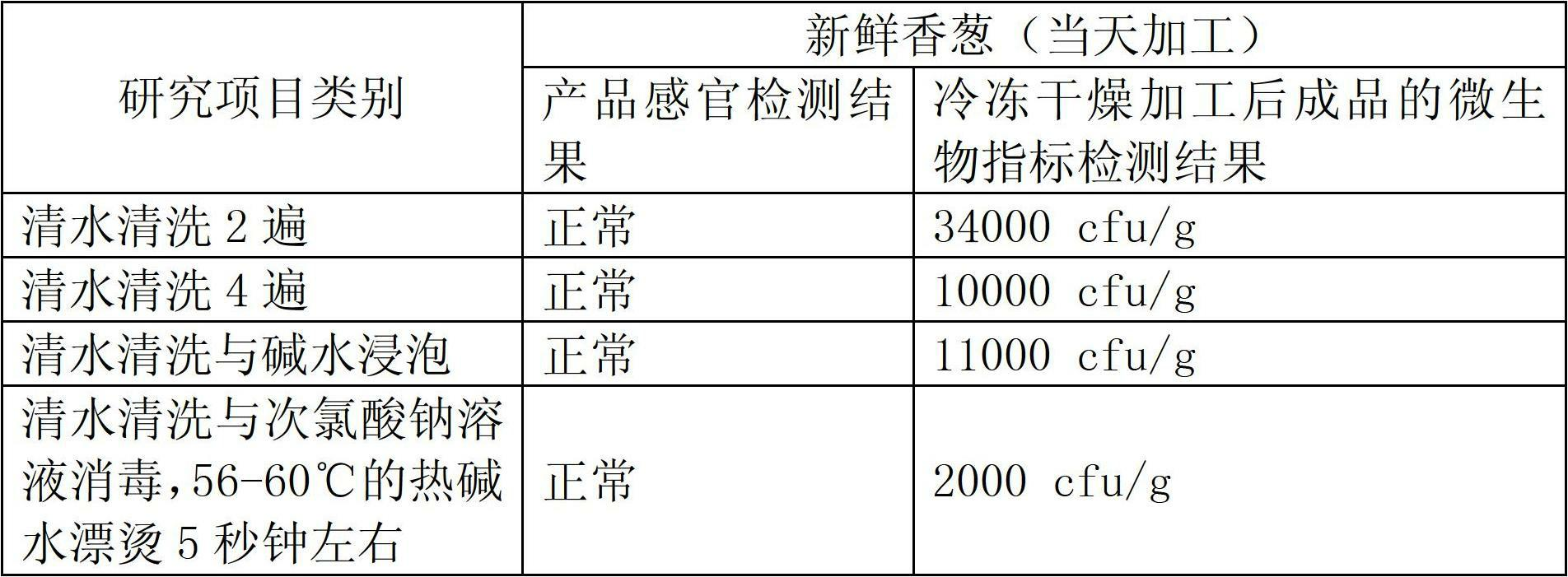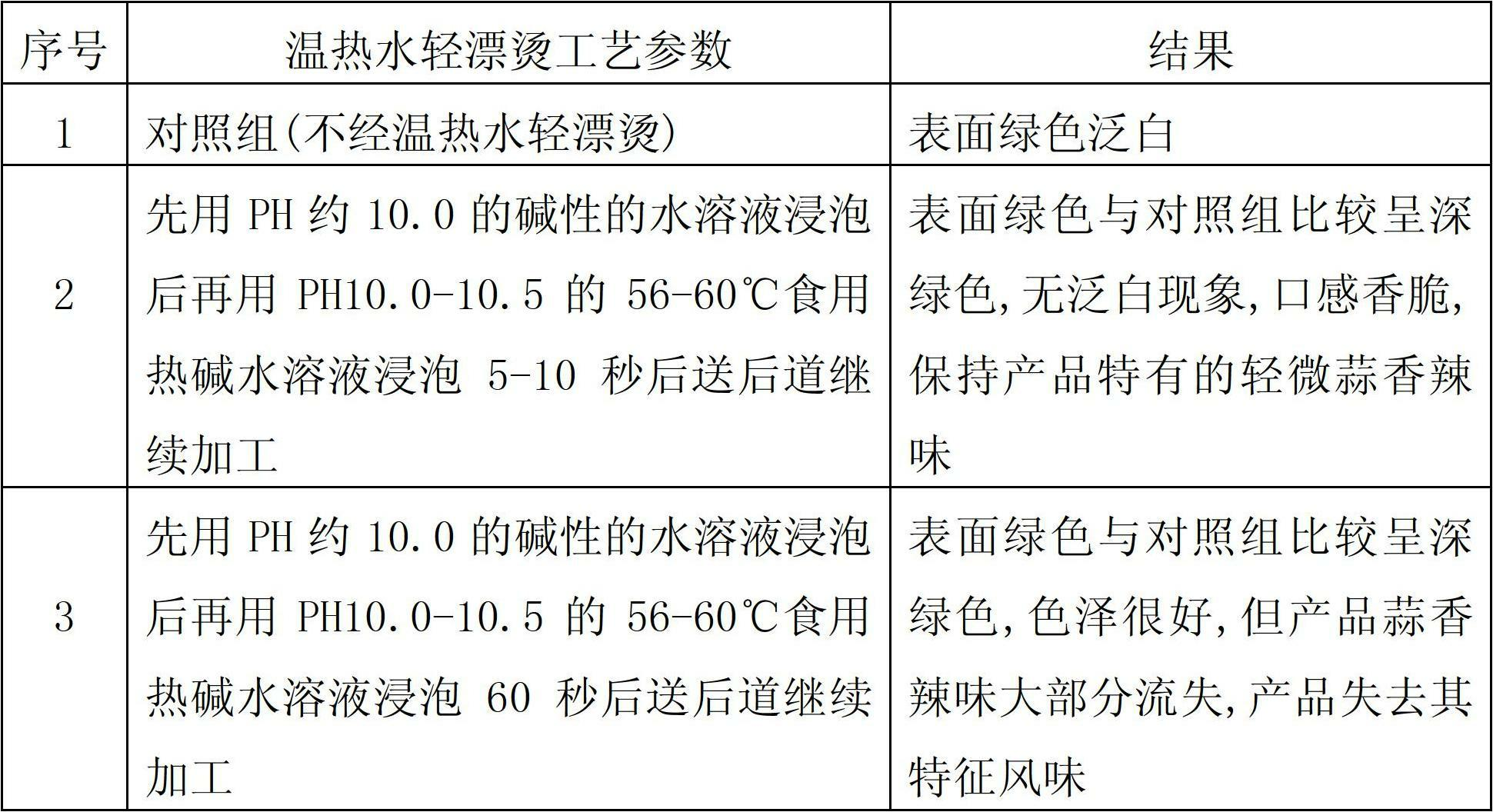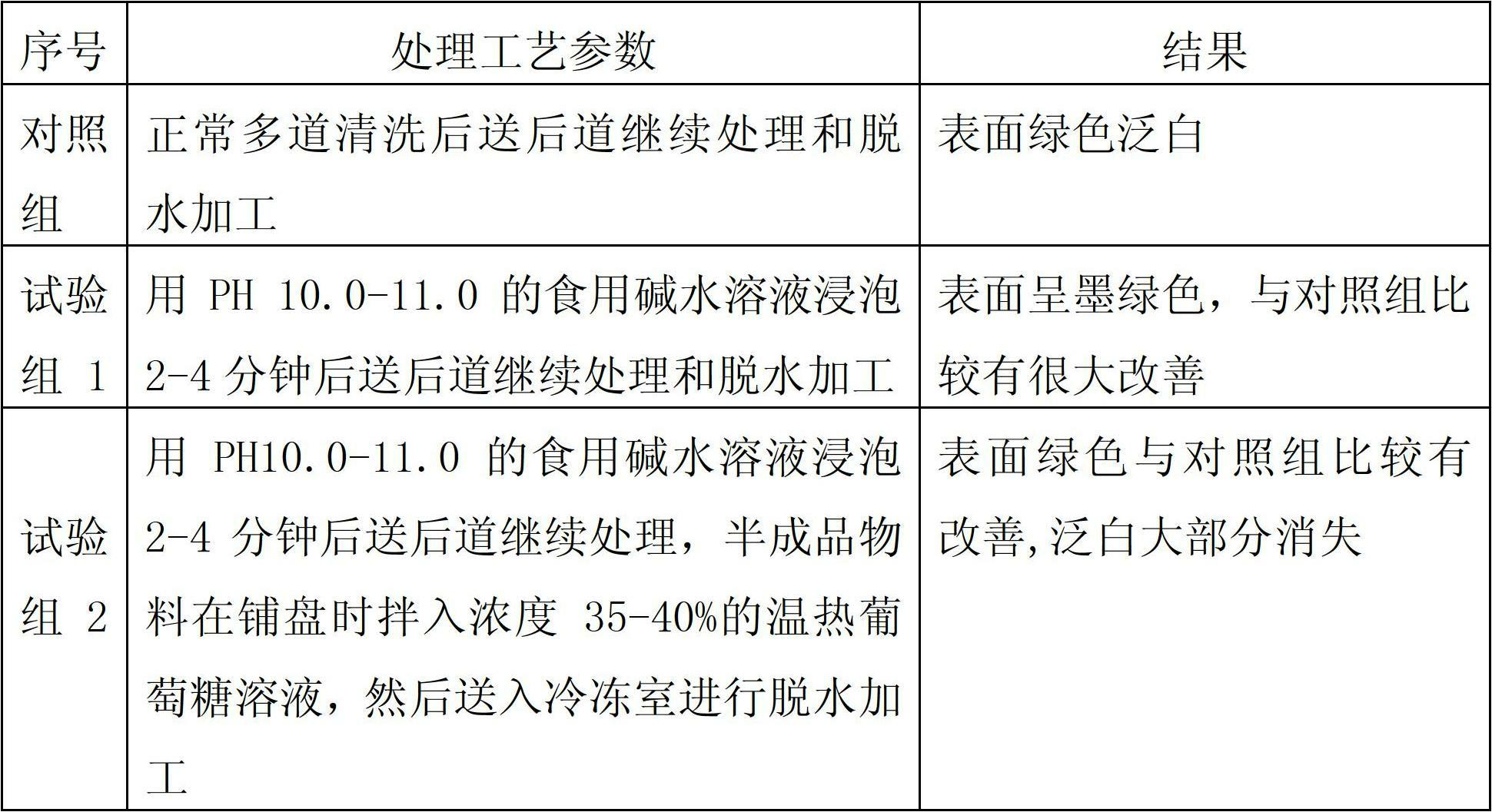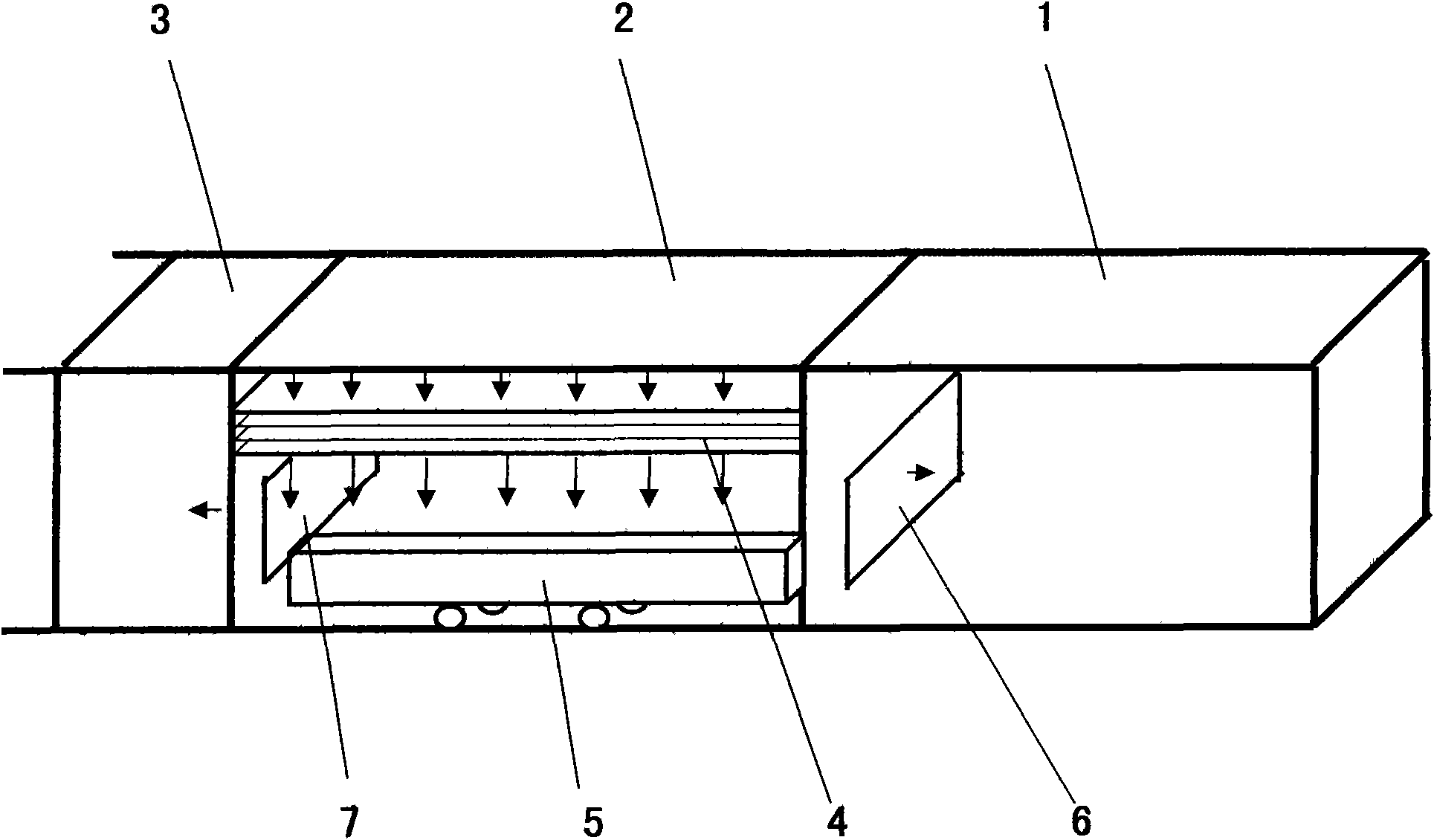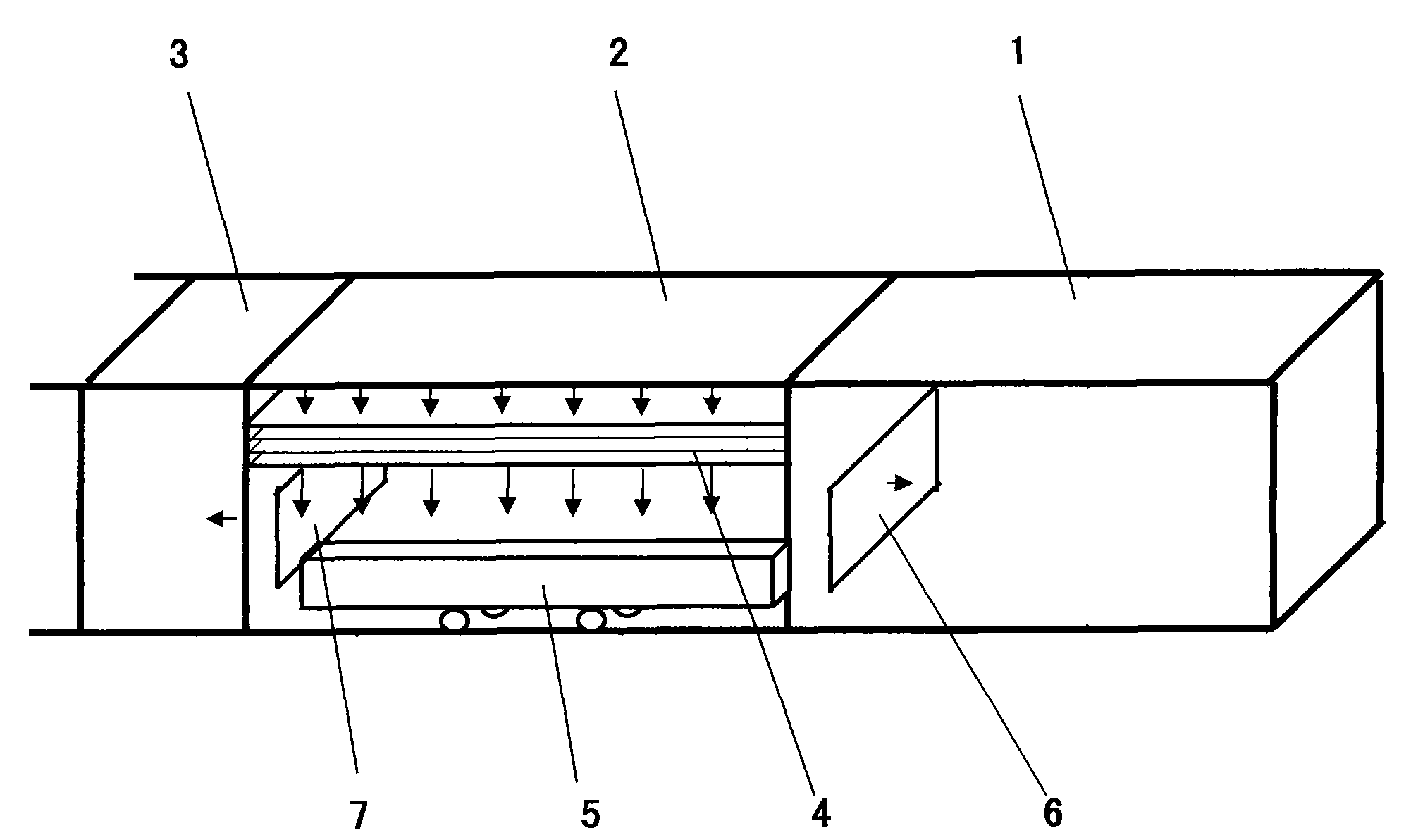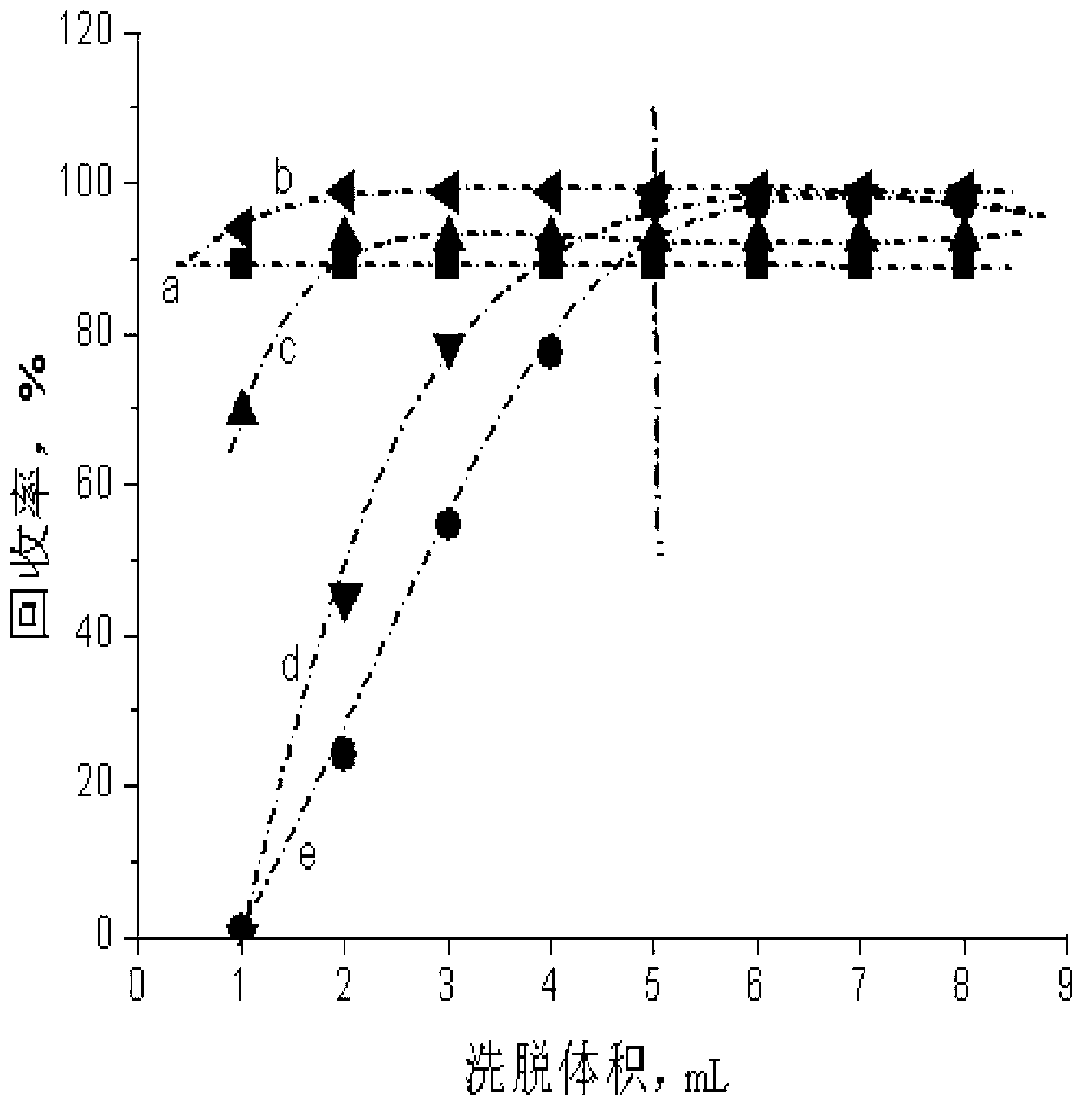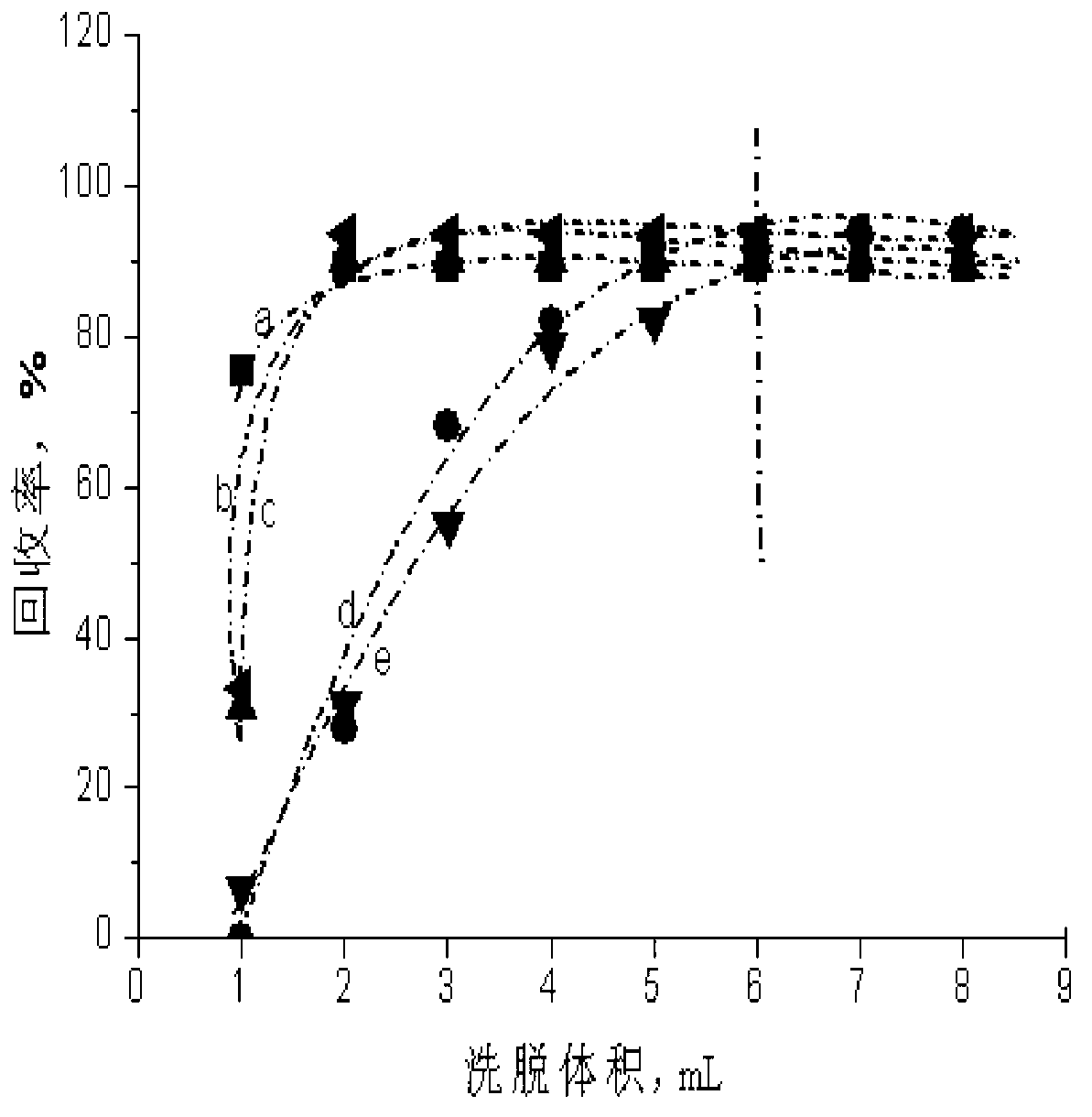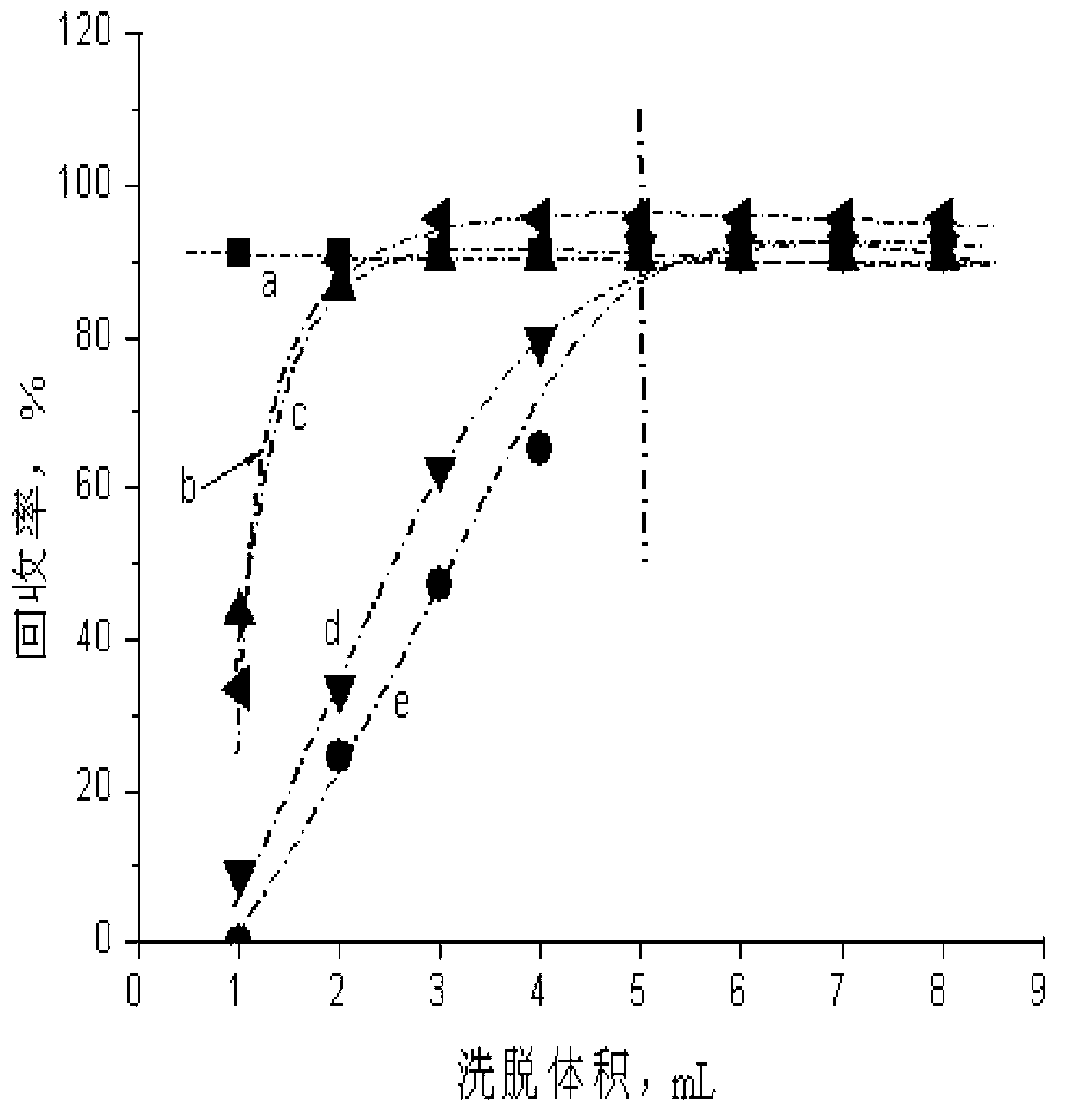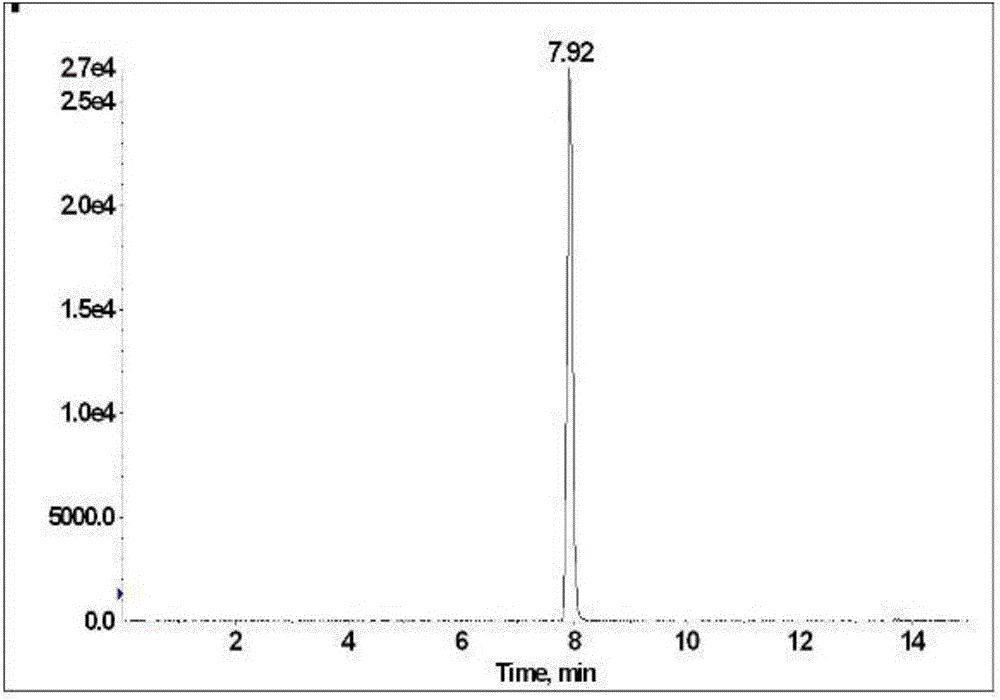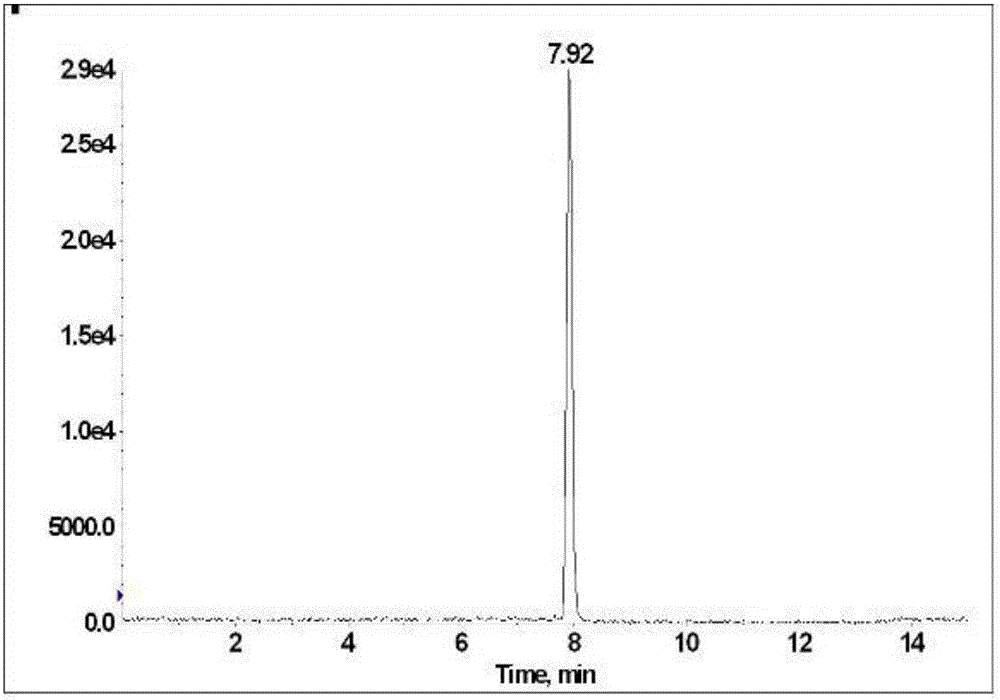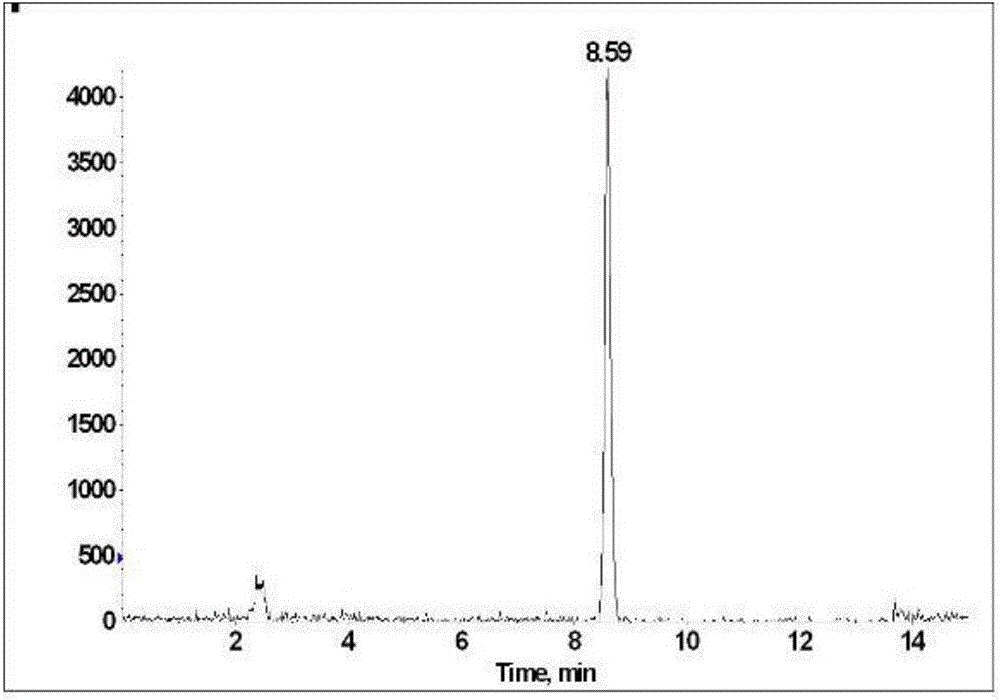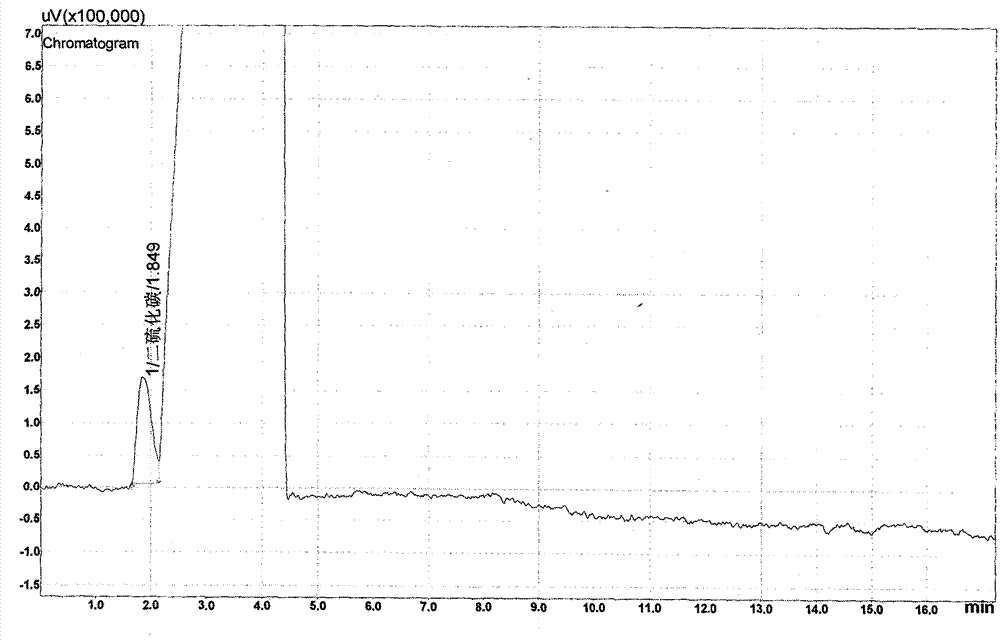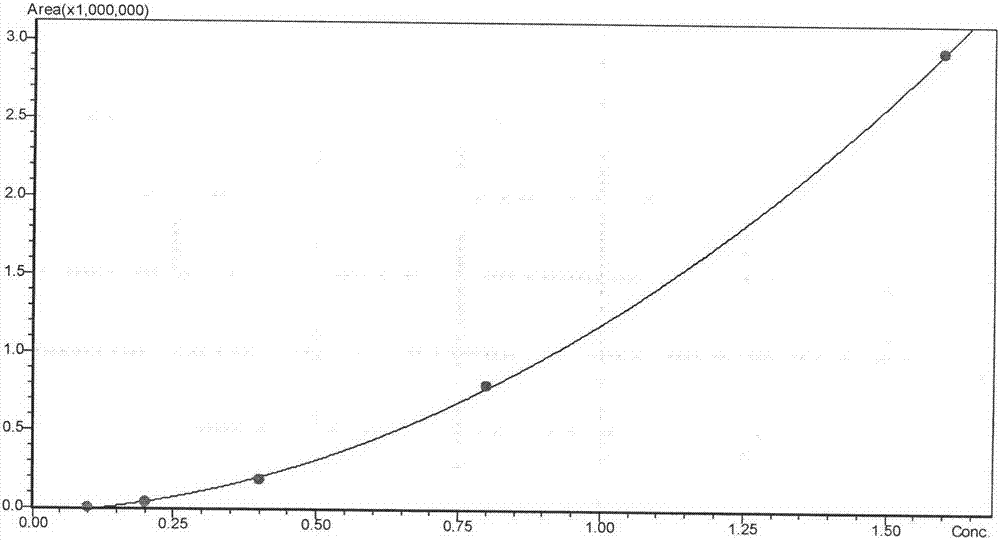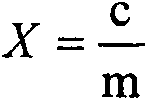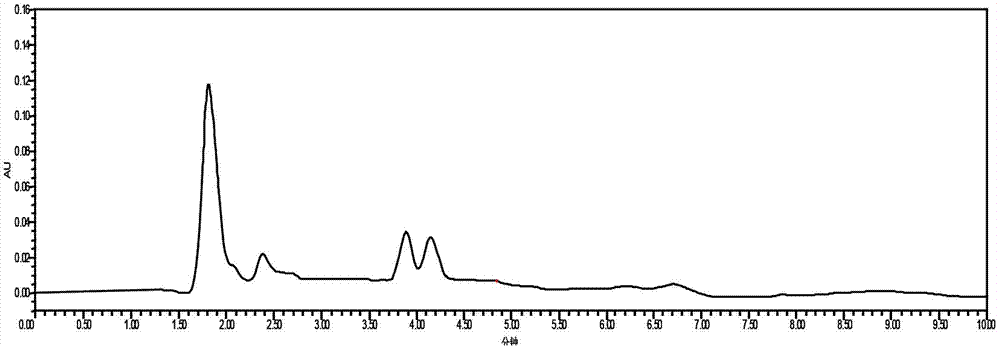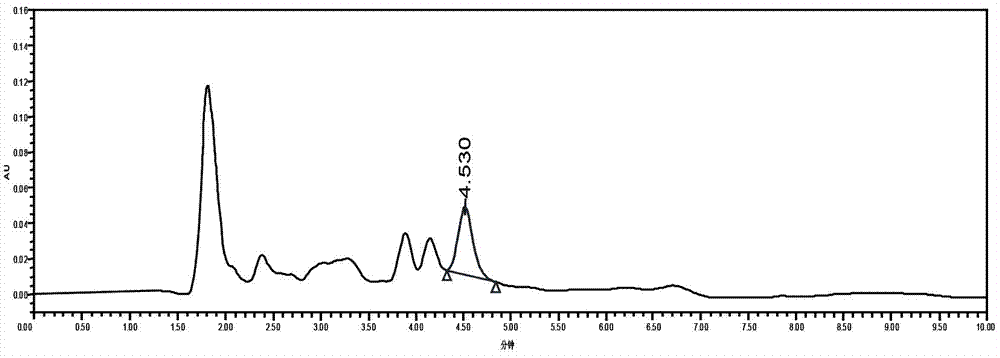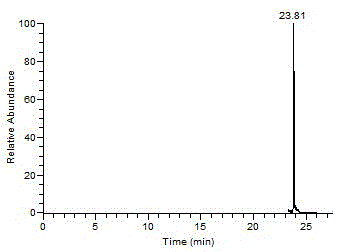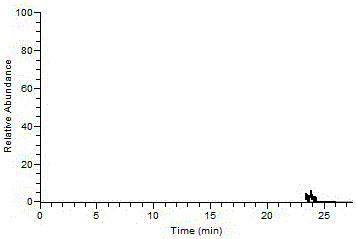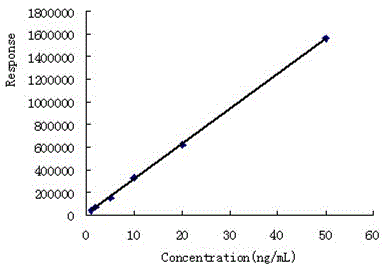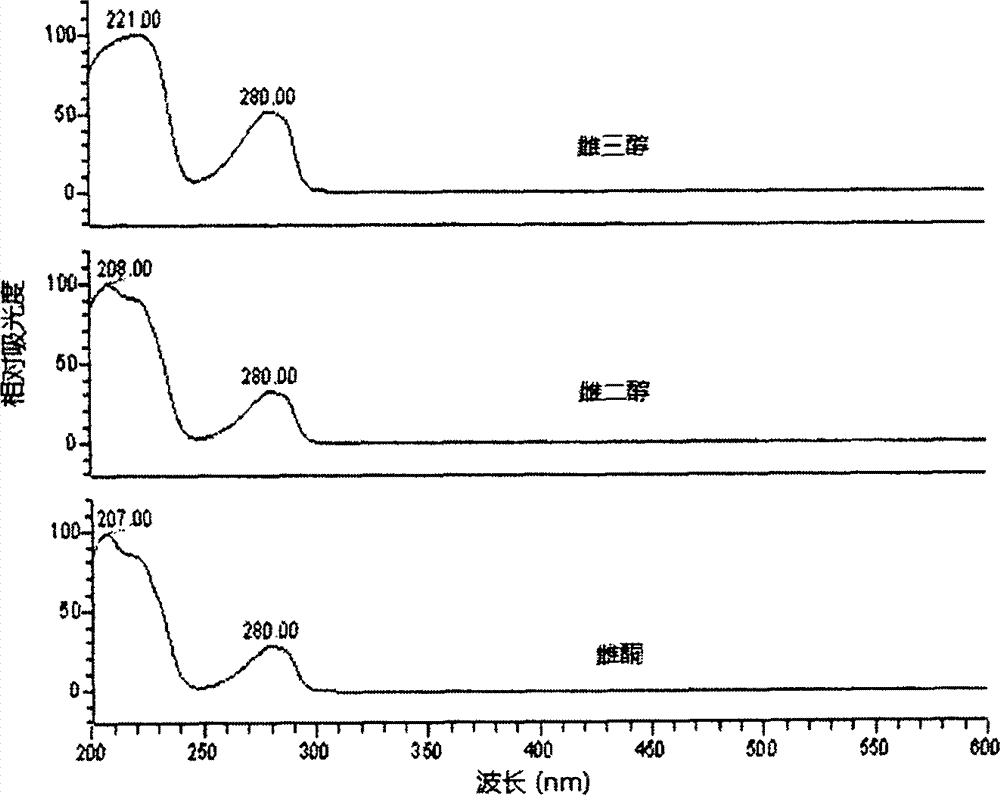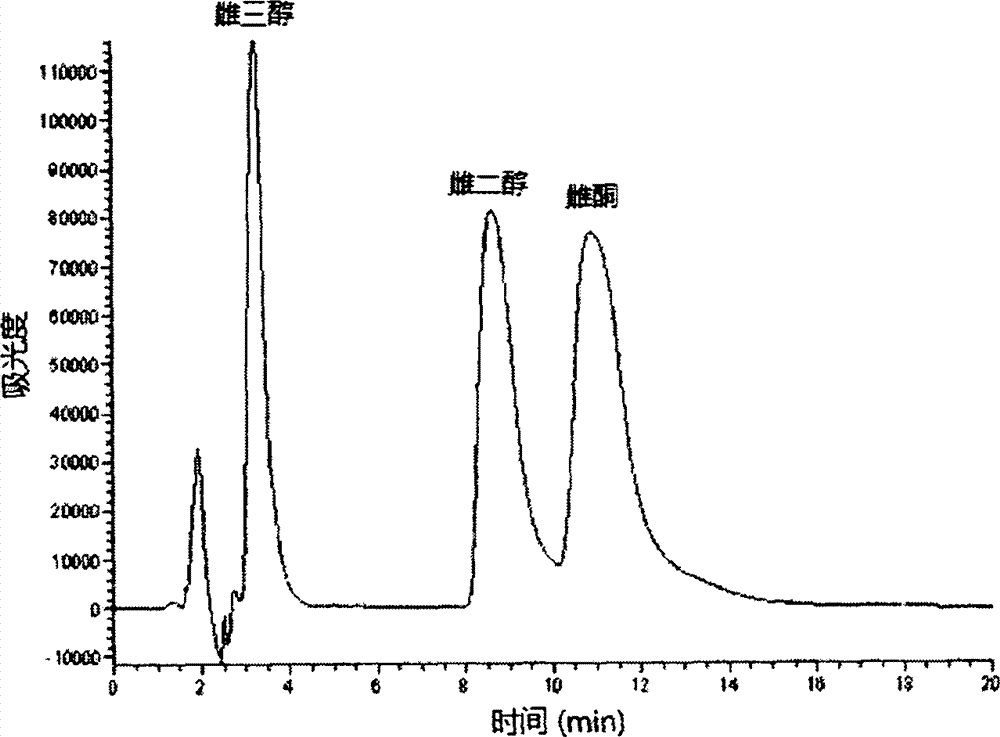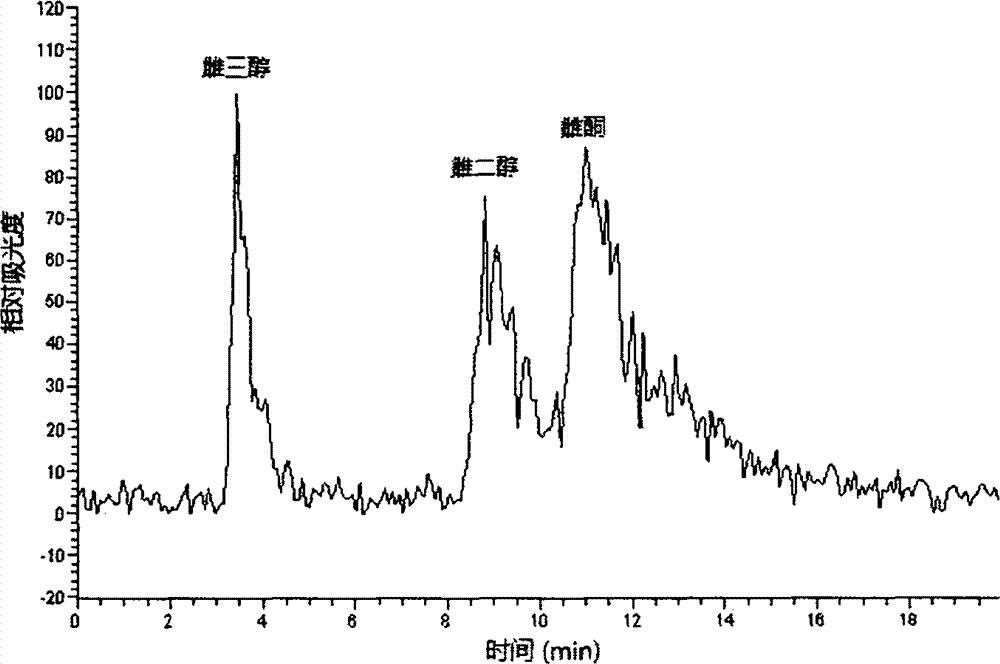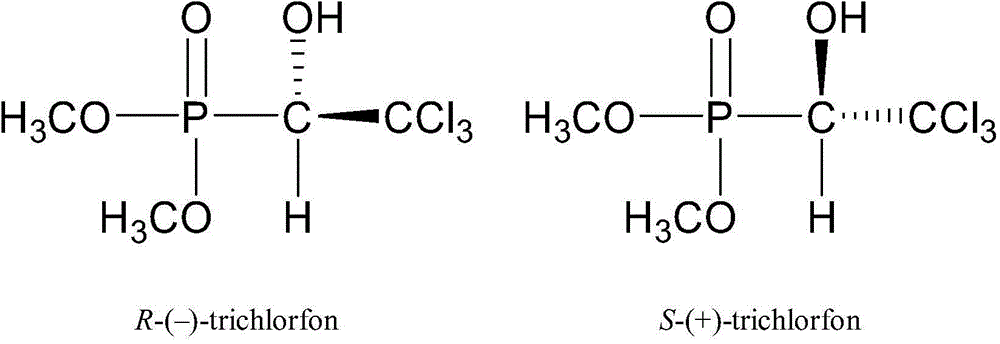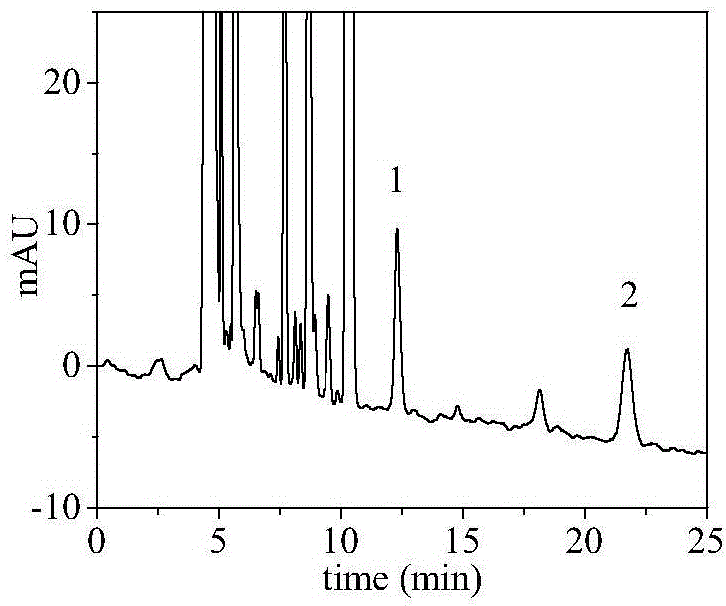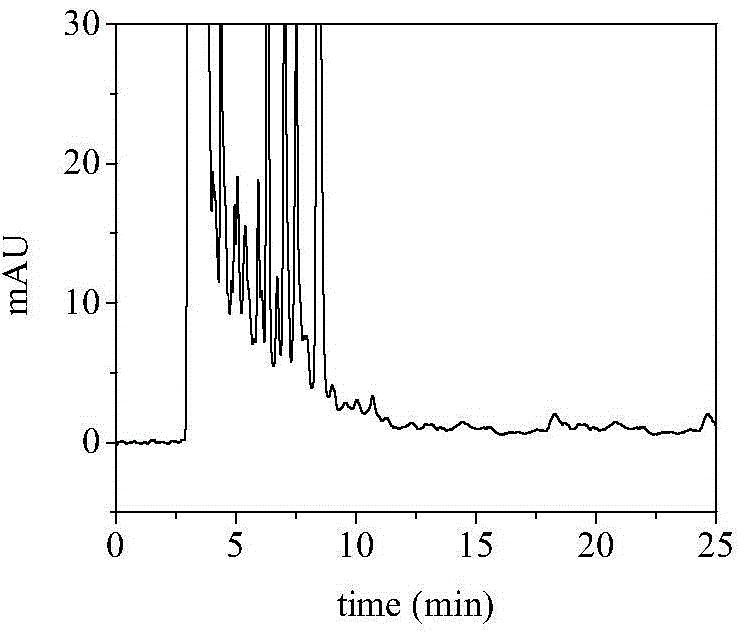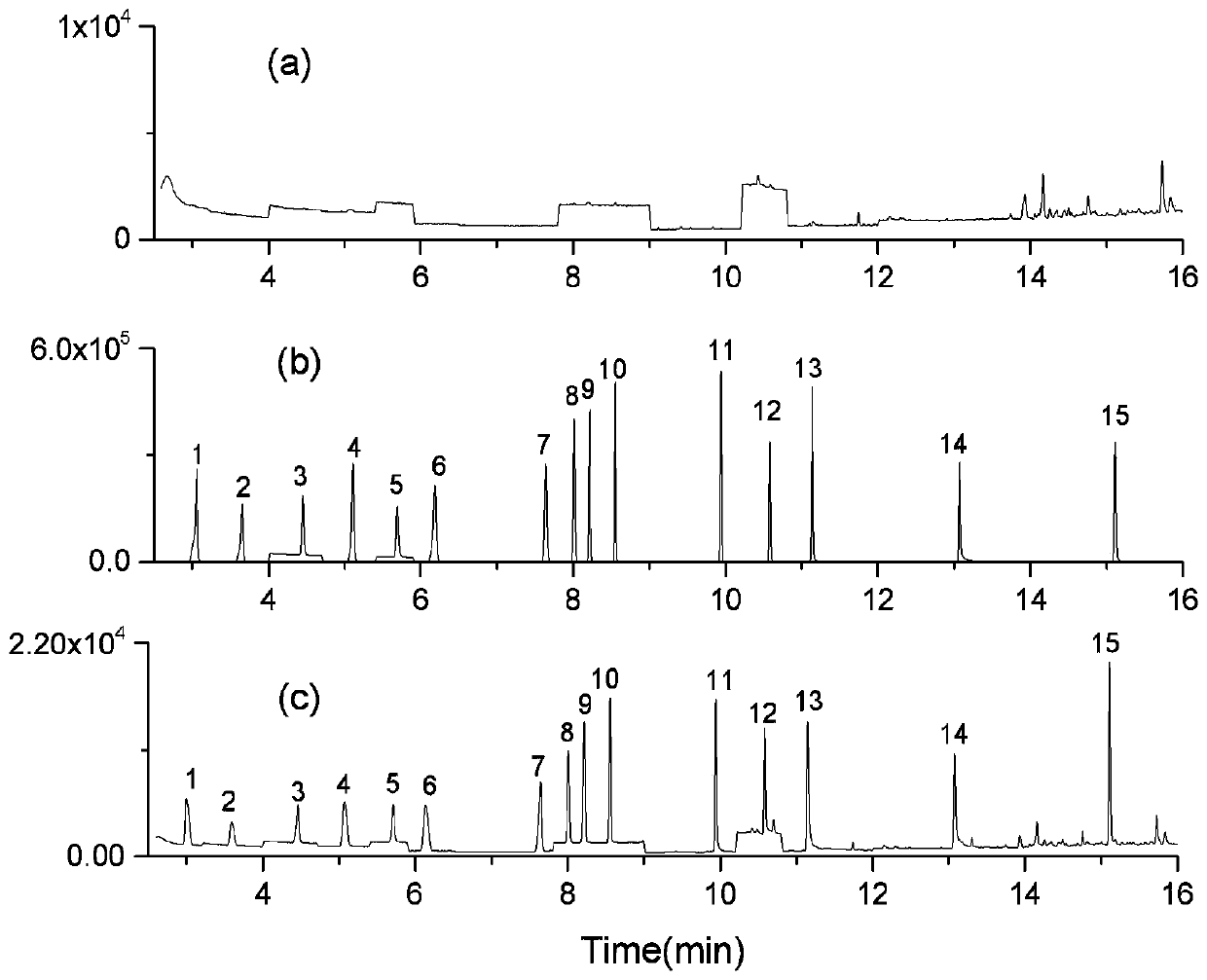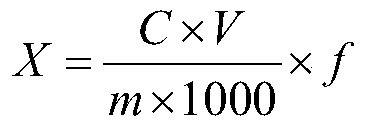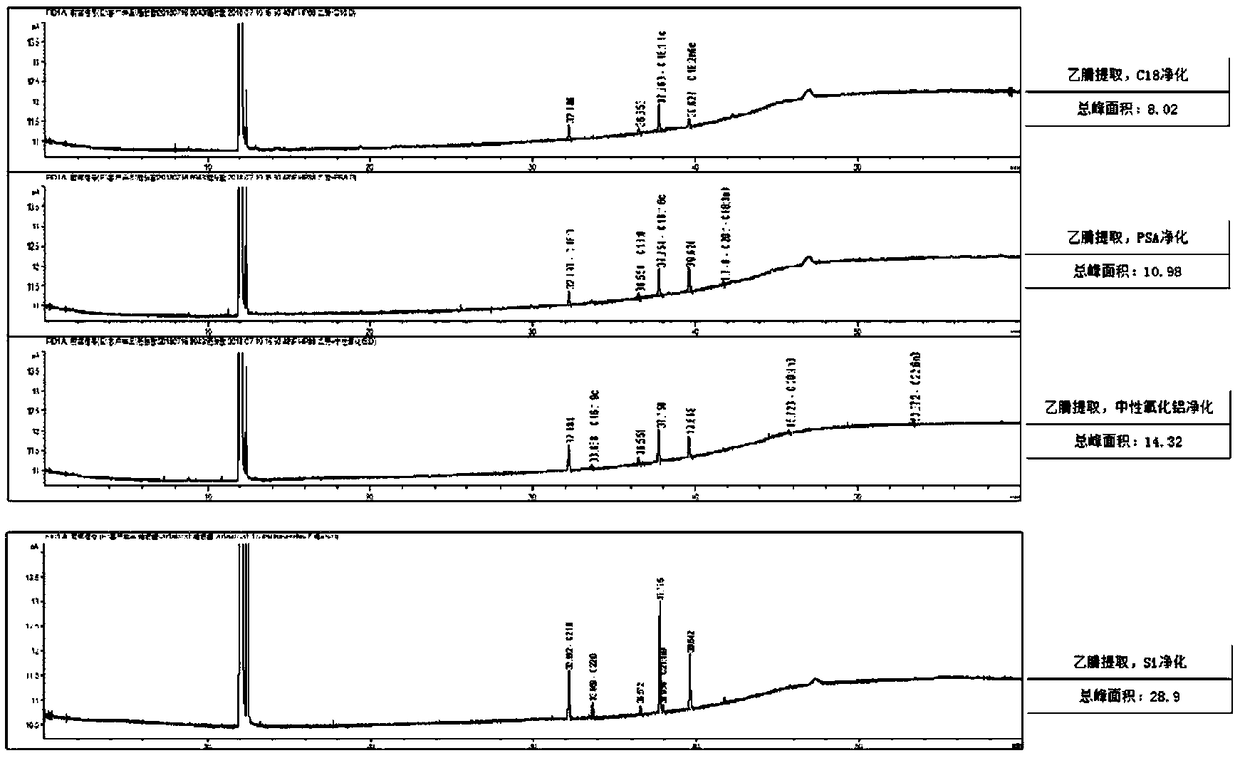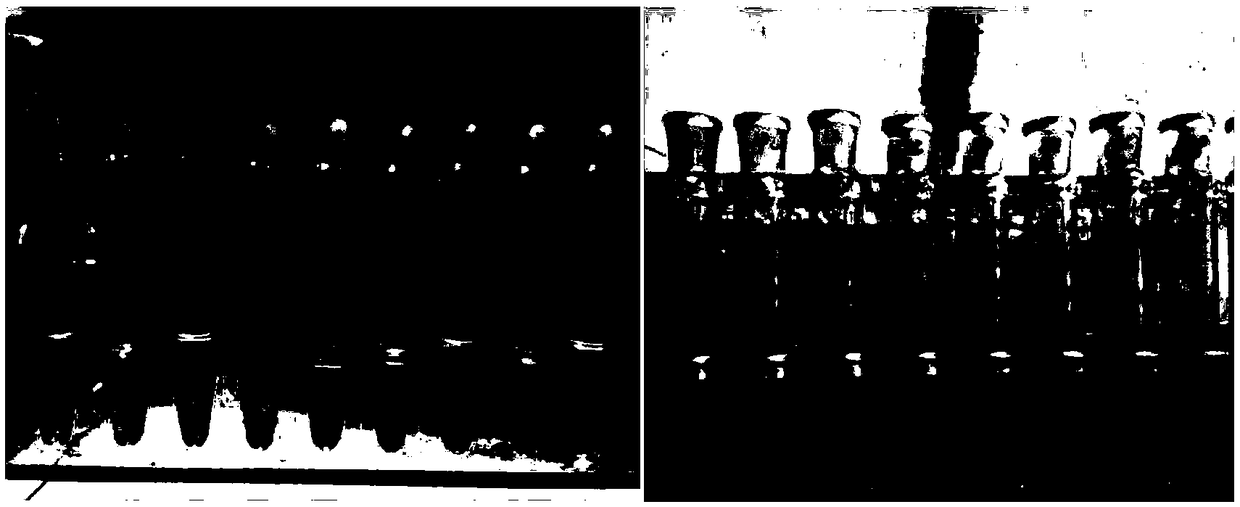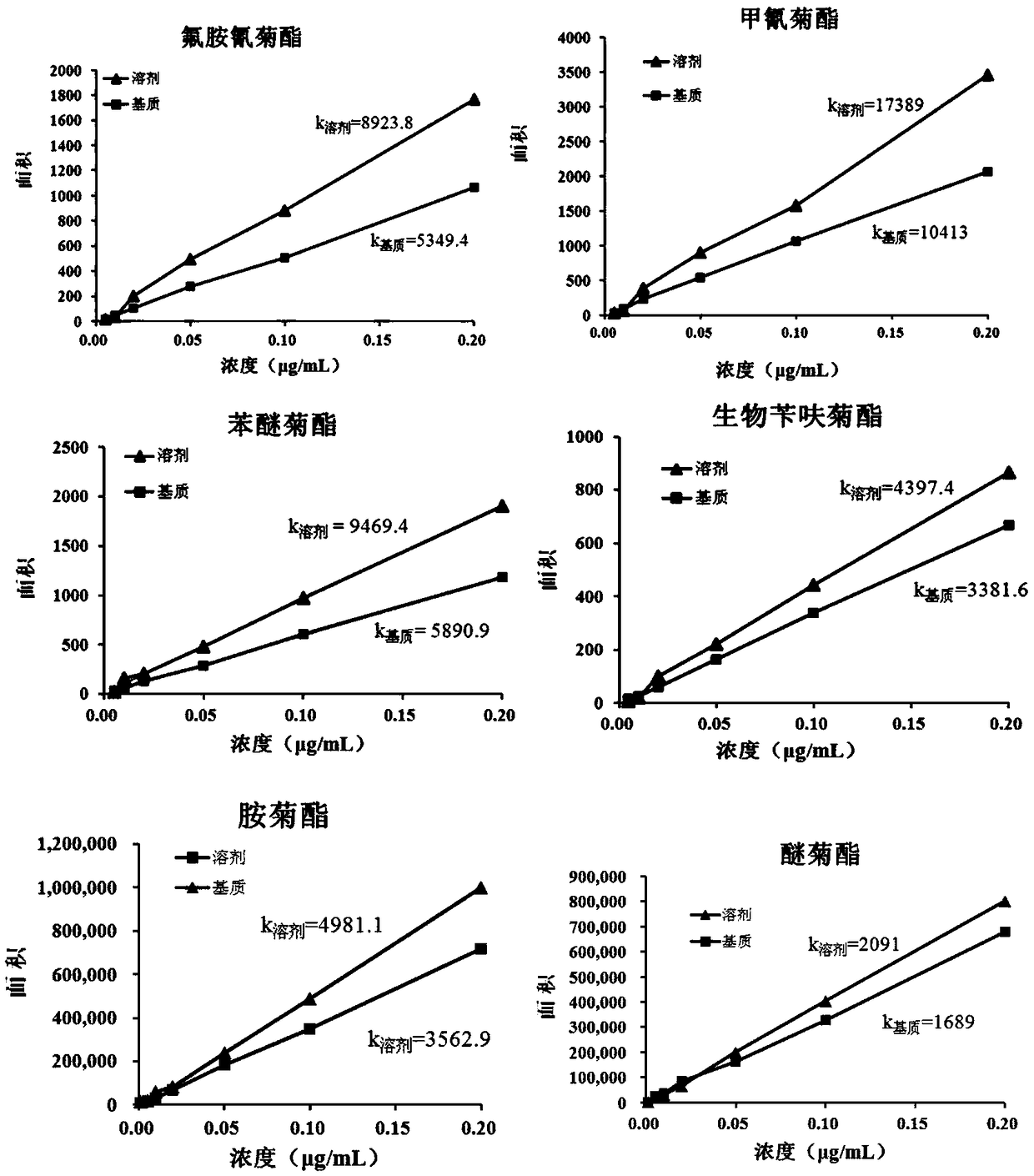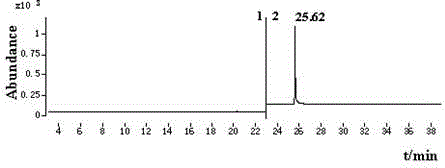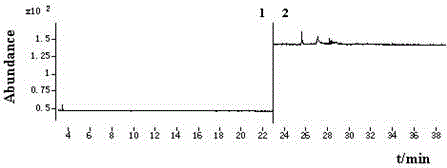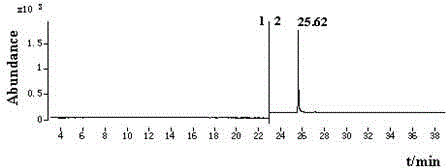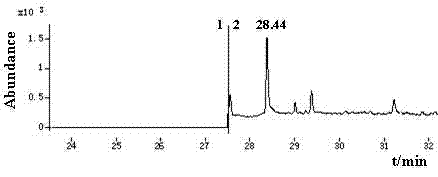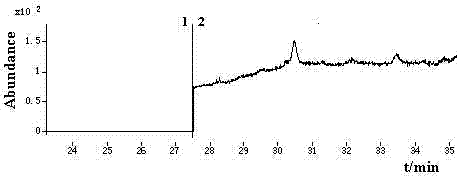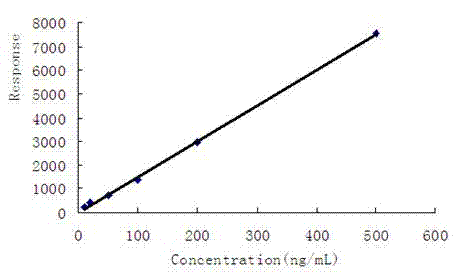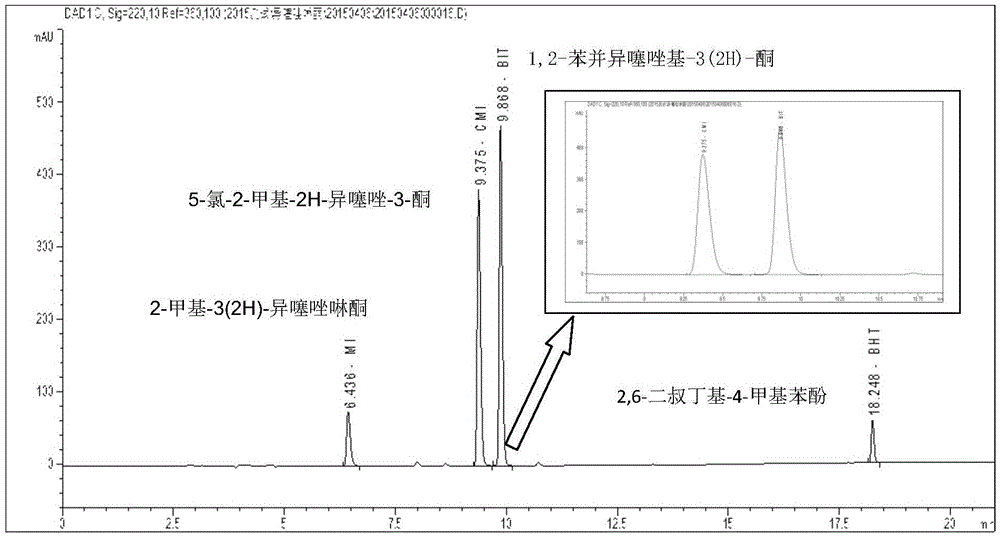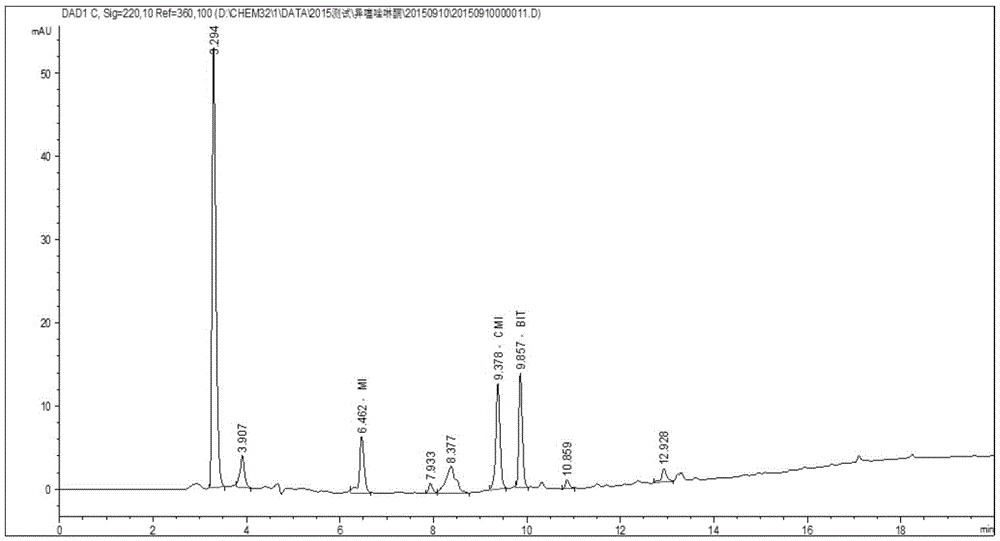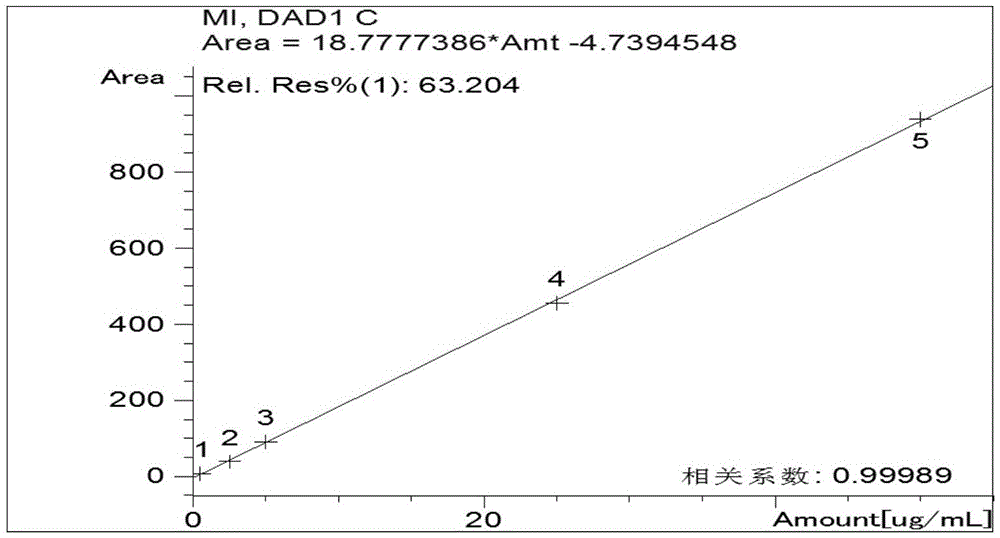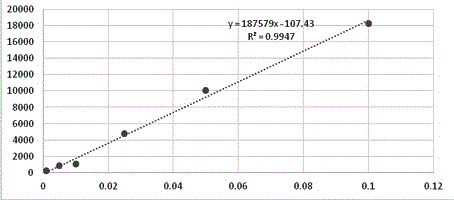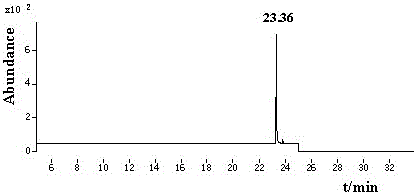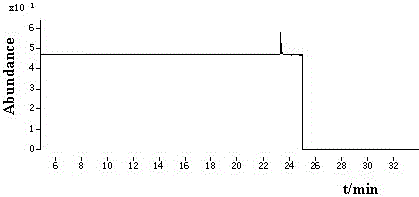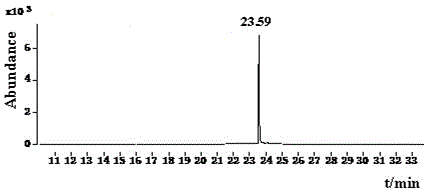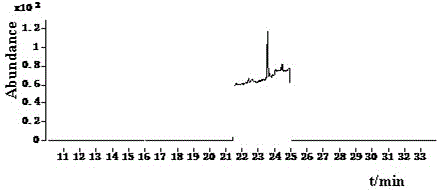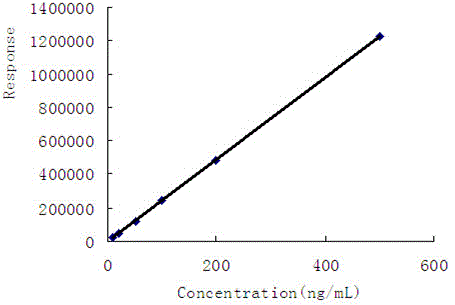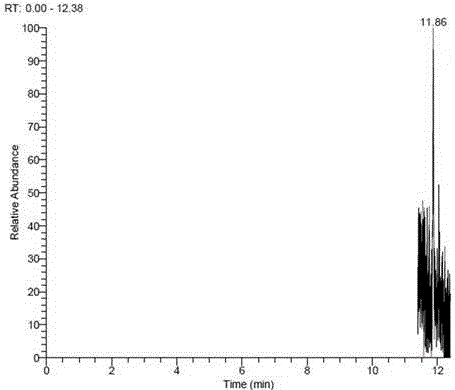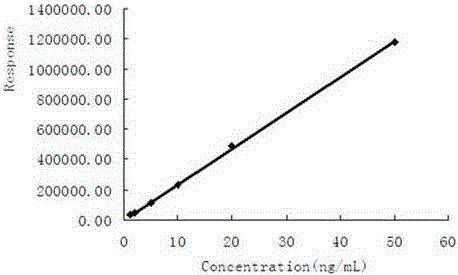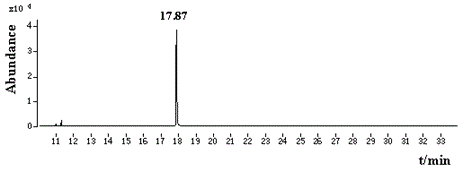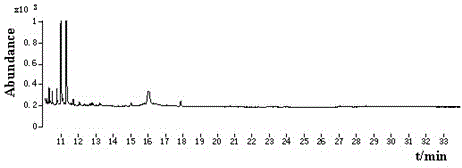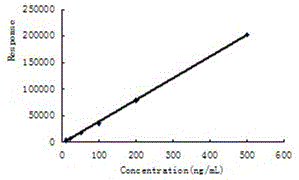Patents
Literature
40 results about "Residual vol" patented technology
Efficacy Topic
Property
Owner
Technical Advancement
Application Domain
Technology Topic
Technology Field Word
Patent Country/Region
Patent Type
Patent Status
Application Year
Inventor
Medical Definition of residual volume.: the volume of air still remaining in the lungs after the most forcible expiration possible and amounting usually to 60 to 100 cubic inches (980 to 1640 cubic centimeters)-called also residual air; compare supplemental air.
Color-protecting processing method of freeze drying onion
ActiveCN102640916AGreen stableDefects against green fadingFood preparationResidual volAlkaline water
The invention discloses a color-protecting processing method of freeze drying onion, wherein the method comprises the following steps of: immersing onion materials in an alkaline water solution firstly; then bleaching slightly in an alkaline warm water, cleaning, soaking by using a natural reducing sugar solution and draining; then freezing the onion materials by adopting a slow freezing mode; finally, freezing, drying, dehydrating and processing the frozen onion materials, wherein the slow freezing mode is that the total freezing time is not less than 5 hours, and the central temperature of the onion materials after freezing is less than and equal to minus 22 DEG C. After the scheme is adopted, according to the invention, the acid degree is regulated through the alkaline water solution firstly, and chlorophyll is prevented from being subjected to de-magging to lead to the defect of green fading of the materials, thus the green of the onion materials is kept to be stable, and the problem that the metal content of the materials in the prior art exceeds the standard is overcome. Moreover, according to the invention, a non-toxic natural reducing sugar solution is utilized as a processing auxiliary material for protecting the color, the problem that the sulfite residual quantity of the product after color-protection of the freeze drying onion exceeds the standard is overcome, and the product safety is ensured.
Owner:福建省新闽商业运营管理有限公司
100-stage cleaning laminar flow inoculation under barotropic atmosphere during edible fungus industrial cultivation
InactiveCN101816257AGuaranteed normal outflowLess chance of infection with bacteriaHorticultureResidual volHigh humidity
100-stage cleaning laminar flow inoculation under barotropic atmosphere during edible fungus industrial cultivation belongs to edible fungus production technology. The invention aims to solve the following problems: the existing open inoculation is inadvisable to be adopted under the conditions of plum rain seasons and high temperature and high humidity climate; poisonous residual quantity emerges when spatial standard sterilization is carried out in the inoculation environment; and the success rate of inoculation generally fluctuates from 97% to 99%. The invention is characterized in that fresh air enters into the top of the workshop under the pressure higher than the normal atmosphere pressure and is exhausted downwards after being efficiently filtered and purified by a 100-stage cleaning laminar flow cover; the inoculators, the inoculation machines and the fungus flask transfer cars are all arranged in 100-stage cleaning laminar flow from top to bottom; and the barotropic atmosphere of the 100-stage cleaning laminar flow from top to bottom is at least higher than 30Pa, the gas pressure in the cooling workshop and the corridor of the fungus culturing workshop. The invention preliminarily shows the following beneficial effects: inoculation can be carried out in due time at all seasons according to the production requirements; the problem of poisonous residual quantity emerging after standard sterilization is prevented; and the success rate of inoculation is stably as high as 99.7-99.9%.
Owner:镇江市丹徒区正东生态农业发展中心
Fresh milk and preparation technology thereof
The invention discloses fresh milk and a preparation technology thereof. The preparation technology comprises the following steps: filtering raw milk to remove impurities such as dust in the raw milk;centrifuging the filtered raw milk to remove sundries such as non-laticiferous cells in the raw milk; performing reverse osmosis membrane concentration, milk fat separation, degassing and sterilization on the purified material, wherein low-temperature standarization of the purified material is realized through the reverse osmosis membrane concentration. Meanwhile, through cooperation of the stepsand order, bacteria in the raw milk are killed, and the nutrition loss of the fresh milk is low; according to tests, total residue of microorganisms in the fresh milk is less than or equal to 1 cfu / mL, including less than 1 cfu / mL of total spores and less than 1 cfu / mL of total bacterial colony; with respect to the nutritive indexes, the content of furosine is less than or equal to 12 mg / 100g, the content of beta-lactoglobulin is greater than or equal to 2,400 mg / L, the alkaline phosphatase is negative, and the content of lactoferrin is greater than or equal to 25 mg / L.
Owner:INNER MONGOLIA MENGNIU DAIRY IND (GRP) CO LTD
Measuring method of residual quantity of preservatives
InactiveCN103197009AMeet residue monitoring requirementsSimple and fast operationComponent separationEthyl hydroxybenzoateGas phase
The invention discloses a measuring method of the residual quantity of preservatives. The measuring method of the residual quantity of the preservatives is used for simultaneously measuring five preservatives through using gas chromatography-mass spectrometry, the five preservatives comprise methyl p-hydroxybenzoate, ethyl p-hydroxybenzaote, beta-naphthol, 4-phenylphenol and diphenyl ether; and the measuring method of the residual quantity of the preservatives specifically comprises the following steps of: smashing a sample to be measured, performing ultrasonic extraction on the sample to be measured through an organic solvent, concentrating the sample to be measured through a parallel evaporator for the first time, purifying the sample to be measured through a solid phase extraction column, concentrating the purified sample to be measured for the second time, fixing the volume through methanol, filtering the treated sample, and performing gas chromatography-mass spectrometry analysis on the filtered sample. The method has the advantages of being convenient and quick for operation and good in repeatability, and the like, the adding standard recovery of the method is 80.5-104%, the relative standard deviation (RSD) is 1.21-6.41%, and the method is capable of meeting the monitoring demands of the residual quantities of the five preservatives in fresh fruits.
Owner:广东省惠州市质量计量监督检测所
Method for removing chromium from porphyra haitanensis
The invention discloses a method for removing chromium off porphyra haitanensis. The method is implemented by putting fresh porphyra haitanensis and de-ionized water in weight volume ratio of 4.5-5.5:25 into a container, moving the container into an ultrasonic extractor, and performing ultrasonic treatment to the porphyra haitanensis in the container in the interval ultrasonic way of using ultrasonic wave for o.3-0.6 seconds and pausing for 0.7-0.4 seconds with ultrasonic wave temperature being 25-45 DEG C, ultrasonic wave frequency being 25kHz and total ultrasonic times being 10-20 minutes; after the ultrasonic treatment with the above way and conditions, the removal rate of chromium off porphyra haitanensis can reach above 75%, the residual quantity of chromium in porphyra haitanensis meets the requirement of national standard basically, thus reducing harm to human bodies of people and especially children after eating, not causing contamination to porphyra haitanensis, having littleinfluence on quality of porphyra haitanensis, less removal time, high speed and high removal rate.
Owner:NINGBO INST OF TECH ZHEJIANG UNIV ZHEJIANG
Method for removing arsenic in Porphyra haitanensis
The invention discloses a method for removing arsenic in Porphyra haitanensis. Fresh Porphyra haitanensis and deionized water are put into a container by weight-to-volume ratio of 4.5-5.5:25. The container is moved into an ultrasonic extractor. Ultrasonic treatment is conducted to the Porphyra haitanensis in the container under ultrasonic temperature of 25-45 DEG C and ultrasonic frequency of 25 KHz in a way that ultrasonic waves are emitted for 0.3-0.6 seconds at intervals of 0.7-0.4 seconds. The total time of the ultrasonic treatment is 10-25 minutes. Through the ultrasonic treatment under the conditions and in the way, the removal rate of the arsenic in Porphyra haitanensis can reach more than 60 percent, the residual arsenic in Porphyra haitanensis is lower than the value required by the national standard, and the harmfulness to the bodies of people, especially the bodies of children, is reduced. The method has the advantages that no pollution is caused to Porphyra haitanensis, the impact on the quality of Porphyra haitanensis is small, the removal time is short, the speed is fast and the removal rate is high.
Owner:NINGBO INST OF TECH ZHEJIANG UNIV ZHEJIANG
Method for simultaneously determining residue of common herbicide in tobacco
InactiveCN107045023AReduce processReduce preparationComponent separationSolid phase extractionTandem mass spectrometry
The invention discloses a method for simultaneously determining the residue of a common herbicide in tobacco. The method comprises the following steps: using acidified acetonitrile for extracting a target object in a tobacco sample; using a florisil solid-phase extracting column for purifying; eluting with a mixed solution of acetone / cyclohexane at a volume ratio of 3:7; concentrating the eluent and then adopting trimethyl silanized diazomethane for derivatizing; and utilizing an online gel permeation chromatography-gas chromatography-tandem mass spectrum combined instrument for detecting. Compared with a standard method, the method has the advantages that the detection indexes of four standard methods are combined, dacthal is added, the detection efficiency is obviously increased, the sensitivity is higher, the anti-interference capacity is higher, and the high recovery rate of the sample and the excellent reproducibility are greatly guaranteed.
Owner:贵阳海关综合技术中心
Lead removal method for porphyra haitanensis
The invention discloses a lead removal method for porphyra haitanensis, which includes that fresh porphyra haitanensis and deionized water in weight volume ratio of 4.5-5.5:25 are placed in a container, the container is moved to an ultrasonic wave exactor for performing ultrasonic treatment on the porphyra haitanensis with the ultrasonic lasting time of 0.3-0.6 and interval of 0.7-0.4 sec and at the ultrasonic temperature of 25-45 DEG C and ultrasonic frequency of 25 KHz, and the total ultrasonic treatment time is 15-25 min; after the ultrasonic treatment with specific conditions, the lead removal rate of porphyra haitanensis can reach more than 92%, and the lead residual quantity of porphyra haitanensis is lower than the national standard requirement, the harmfulness to people on having porphyra haitanensis, in particular to children is reduced; besides, the lead removal method has no pollution to porphyra haitanensis, has slight influence on the quality of porphyra haitanensis, shorter removal time, high speed and higher removal rate.
Owner:NINGBO INST OF TECH ZHEJIANG UNIV ZHEJIANG
Method for determining residue of methaqualone and diazepam in animal-derived food
ActiveCN106841457AScientific and accurate analysisQuick analysisComponent separationRelative standard deviationPig kidney
The invention discloses a method for determining residue of methaqualone and diazepam in animal-derived food like pork, fish, pig liver and pig kidney. The method includes: adopting ethyl acetate as an extraction solvent; purifying through a mixed powder pipe; using a liquid chromatography-tandem mass spectrometer for detection; adopting an internal standard method for quantification. Regression equation correlation coefficient reaches higher than 0.99, determination lower limit is 0.5ug / kg, recycling rate on adding concentration level of 0.5-5ug / kg is 90-120%, and relative standard deviation in a lab is lower than or equal to 15%. The method is simple and convenient to operate, high in sensitivity and interference resistance, wide in matrix adapting range, scientific and accurate in qualification and quantification, suitable for quick analysis of mass samples and capable of meeting technical requirements of related supervision departments of China.
Owner:INSPECTION & QUARANTINE TECH CENT OF GUANGDONG ENTRY EXIT INSPECTION & QUARANTINE BUREAU
Determination of amount of residual dithiocarbamate bactericide in grain through gas chromatography method
The present invention discloses a method for determining the amount of residual dithiocarbamate bactericide in grain through a gas chromatography method. The determination method comprises that: a sample reacts with a reducing acid solution in a closed container, dithiocarbamate is decomposed, carbon disulfide is quantitatively released and is absorbed with an organic solvent, the organic layer is taken and is subjected to chromatography analysis by using a gas chromatograph (with FPD-S filter), qualitation is performed on the target substance according to the chromatography peak retention time, and quantitation is performed through an external standard method. According to the present invention, the organic solvent is adopted to absorb the carbon disulfide generated from acidification decomposition of the dithiocarbamate bactericide, and the analysis through the gas chromatograph is performed, such that the instability of the headspace sample injection is overcome, the damage of the acid condition on the column is overcome, the interference can further be eliminated, and the qualitative and quantitative analysis can be well performed; and the minimum detection limit of the method is 0.04 mg / kg.
Owner:SUZHOU PUNI TEST TECH CO LTD
High-performance liquid chromatography for detecting residual amount of matrine in tobacco
InactiveCN103163264AEfficient extractionPurification Step ImprovementsComponent separationResidual volMatrine
The invention provides a high-performance liquid chromatography for detecting the residual amount of matrine in tobacco. The high-performance liquid chromatography comprises the following steps that (1) preparing a standard matrine solution, including weighing a standard matrine of a certain mass, dissolving with methanol, titrating to obtain a standard stock matrine solution, and diluting the standard stock matrine solution stepwise to obtain standard work solutions with a series of concentration gradients; (2) extracting, including extracting the matrine in tobacco by using dichloromethane as an extracting agent; (3) purifying, including purifying an extract by using an alumina SPE (solid phase extraction) columella; (4) detecting by using the liquid chromatography; (5) establishing a standard curve; and (6) computing and analyzing the matrine residue. The high-performance liquid chromatography provided by the invention is characterized by being simple, accurate, rapid and reliable and is of great importance to controlling the residual amount of matrine in tobacco and guiding the safe and reasonable application of matrine to tobacoo.
Owner:TOBACCO RES INST CHIN AGRI SCI ACAD
Quick GC (Gas Chromatograph)-MS (Mass Spectrometry)/MS determining method of residual quantity of fluxapyroxad
InactiveCN105548446AAvoid matrix interferenceSimple and fast operationComponent separationMatrix solutionRelative standard deviation
The invention discloses a quick GC (Gas Chromatograph)-MS (Mass Spectrometry) / MS determining method of the residual quantity of fluxapyroxad. The GC-MS / MS determining method is mainly used for determining the content of residual fluxapyroxad in animal derived food which is high in fat content. The GC-MS / MS determining method comprises the following steps: homogeneously extracting the residual fluxapyroxad in a sample by using acetonitrile; carrying out GC-MS / MS detection after dispersing and purifying matrix of an extracting solution by using an EMR (Enhanced Matrix Removal) and extracting and concentrating by using a reverse extraction tube; building a corrected standard work curve by adopting a blank-matrix solution which does not contain to-be-detected pesticide; quantifying through an external standard method. According to the GC-MS / MS determining method of the residual quantity of the fluxapyroxad, disclosed by the invention, the average recovery rate is 93.6 to 98.7 percent, the average RSD (Relative Standard Deviation) is 5.0 to 7.4 percent, and the detection limit is lower than 0.044 mug / kg; the GC-MS / MS determining method has the advantages that the operation is convenient and fast, the impurity removing effect is good, the sensitivity is high, the characteristic performance is strong, the repeatability is good, and qualitativeness and quantitativeness are precise; the technical requirements on safety detection of corresponding products of countries of America, EU (European Union), Japan and the like can be met, and a powerful technical support is provided for ensuring the safety of food for people in China and the healthy development of export trade.
Owner:崔淑华
Sulfur dioxide controlled atmosphere preservation method of grapes
InactiveCN107897342AGuaranteed qualityImprove qualityFruits/vegetable preservation by freezing/coolingResidual vol1-Methylcyclopropene
The present invention discloses a sulfur dioxide controlled atmosphere preservation method of grapes. The method comprises the following steps: (1) whole ripen grapes without any mechanical injury anddisease and pest injury are placed in a single layer in a plastic basket with holes in five sides, and the grapes are put into a controlled atmosphere cold storage; (2) the grapes are precooled at -1to 1 DEG C for 24-30 h and 1-methylcyclopropene gas is used in a whole precooling period to conduct a sealed fumigation treatment; and (3) the treated grapes in the step (2) are preserved at a condition of -1 to 1 DEG C, a relative humidity of 85-90%, a SO2 volume concentration of 0.001-0.003%, an O2 volume concentration of 2-6%, a CO2 volume concentration of 2-8% and the balance of N2. The technology is used to preserve the grapes, can effectively prevent browning, dry stems and grain falling of the grape fruits, preserves quality of the fruits, extends a storage period, has a preservation period extended for 10-20 days compared with a common cold storage treatment, and is low in sulfur dioxide residual amount and high in quality.
Owner:TIANJIN AGRICULTURE COLLEGE
Method for measuring residual amounts of hormones in cosmetics
The invention establishes an analytical method for measuring the residual amounts of estradiol, estriol and oestrone in cosmetics by highly efficient liquid chromatography-tandem mass spectrometry. The method comprises the following steps: with methanol as an extraction solvent, ultrasonically extracting different kinds of cosmetic samples for 30min; centrifuging the sample extracting solution with a speed of 12000r / min for 20min; with acetonitrile and water (in a volume ratio of 40:60) as a mobile phase, performing constant gradient elution, wherein the flow speed is 0.2ml / min and the column temperature is 25 DEG; and performing separation by an EclipseXDB-C18 (with the area of 2.1mm*150mm and the grain size of 5 microns) chromatographic column. The result indicates that the correlation coefficient R of an equation of linear regression of the three hormones is in the range of 0.9983-0.9998, the recycling rate is in the range of 95.21%-106.19% and the accuracy degree is in the range of 1.70%-4.82%. The method for measuring the residual amounts of hormones in cosmetics is simple, agile, rapid, reliable, good in reproducibility and applicable to analysis and detection on the content of hormones in cosmetics.
Owner:XINXIANG MEDICAL UNIV
Detecting method for trichlorfon enantiomers in culture pond bottom mud
InactiveCN104990998AResidue achievedResidues, successfully realized the resolution of chiral enantiomers of trichlorfonComponent separationWater bathsEnantiomer
A detecting method for trichlorfon enantiomers in culture pond bottom mud includes the steps that a bottom mud sample is placed into a centrifugal tube, anhydrous sodium sulfate is added to remove water, acetic acid is added to acidize acetonitrile, centrifuging is performed after ultrasonic extraction is performed, an upper layer extracting solution is taken into a flask, the extracting process is repeated 2-3 times, extracting solutions are mixed, the mixed solution is subjected to rotary evaporation and concentration in a water bath at 27 DEG C, a concentrated solution is added into CARB / NH2 cartridges activated in advance, the acetonitrile is used for flushing the flask, flushing liquid passes through the CARB / NH2 cartridges, outflow liquid is collected, and the CARB / NH2 cartridges are blown through nitrogen to be almost dry, hexyl hydride / isopropanol is used for performing redissolving and volume constancy on the liquid to 1 mL, and then the liquid passes through a microporous filtering film of 0.22 micrometer to obtain a solution A; with the hexyl hydride / isopropanol being a moving phase, separation is performed on the trichlorfon enantiomers; a high-performance liquid chromatograph is used for detecting the solution A, (as shown in specifications) IC chiral columns are selected for usage, the temperature of the columns is 25 DEG C, the flow rate is 1 mL / min, and the wavelength is 207 nm. The trichlorfon chiral enantimoers can be successfully separated, in this way, the residual quantity of the trichlorfon enantiomers in the bottom mud is detected, and bases are provided for residual risk estimation and reasonable and safe using of trichlorfon in bottom mud culture.
Owner:ZHEJIANG OCEAN UNIV
Method for measuring residual quantity of pesticide adjuvant based on gas chromatography
ActiveCN110412146AAccurate measurementHigh precisionComponent separationGas chromatography measurementRetention time
The invention discloses a method for measuring the residual quantity of a pesticide adjuvant based on gas chromatography, and particularly relates to the field of detection of the residual quantity ofthe pesticide adjuvant, wherein the detection steps are as follows: S1, preparing a sample; S2, carrying out sample extraction; S3, carrying out sample purification; S4, preparing in the early stage of measurement; S5, measuring; S6, carrying out parallel test; S7, carrying out blank test; and S8, analyzing result and calculating. According to the invention, a sample is homogenized and extracted by acetonitrile, and subjected to salting-out centrifugation, a supernatant is taken, the sample is purified by PSA, the sample is detected by a gas chromatography-mass spectrometer, a characteristic selection ion monitoring scanning mode (SIM) is adopted, the qualitative analysis is carried out according to the retention time and the abundance ratio of qualitative ion fragments, and the quantification is carried out by an external standard method, so that the measurement of the residual quantity of the pesticide adjuvant is more accurate, and compared with the traditional gas chromatography, the detection precision is higher and the detection is more efficient.
Owner:CHONGQING ACAD OF METROLOGY & QUALITY INST
Method for refining liquid hydrocarbon
ActiveCN101857807ASolve evaporation residueSolve the problem of unqualified oil stainsHydrocarbon oils refiningSorbentEvaporation
The invention relates to a method for refining liquid hydrocarbon. In the method, a fixed-bed adsorber is adopted, active carbon and granular clay are used as an adsorbent, the liquid hydrocarbon in the adsorber sequentially passes through an active carbon bed and a granular clay bed of an adsorbent bed, so that oil stains, moisture and other impurities in the liquid hydrocarbon are adsorbed and separated, wherein the adsorption temperature is between 25 below zero and 52 DEG C, the adsorption pressure is between 0.1 and 2.5MPa, and the weight space velocity is between 0.5 and 20h<-1>; the filling height ratio of the granular clay to the active carbon is 0.1 to 5; and the height-diameter ratio of the adsorbent is 3 to 30. By using the method for refining the liquid hydrocarbon, the moisture, oil stains and other impurities in the liquid hydrocarbon can be effectively removed; the problems of evaporation residual quantity and unqualified oil stains of the liquid hydrocarbon are radically solved; and the method has the advantages of simple process, low cost, reproducibility and reusability of the active carbon and the granular clay, no discharge of wastewater and waste alkali liquor, and environmental protection due to the adoption of the fixed-bed adsorber and the active carbon and granular clay composite adsorbent.
Owner:PETROCHINA CO LTD
Method for simultaneously determining six pyrethroid pesticide residues in poultry eggs
ActiveCN109459524ASolve the problem of low recovery rateImprove extraction efficiencyComponent separationRetention timeQuadrupole
The invention discloses a method for simultaneously determining six pyrethroid pesticide residues in poultry eggs. The method comprises the following steps that S1, a sample to be tested is weighed, dispersion extraction is performed by QuEChERs, after supernatant is filtered, the sample to be tested is obtained, and a matrix standard curve is drawn; S2, the sample to be tested obtained in the step S1 is simultaneously subjected to determination of the residual amount of six pyrethroid pesticides by liquid chromatography tandem mass spectrometry, and retention time and ion fragment abundanceratio are used for qualitative analysis, and according to the area of an ion peak, an external standard method is used for quantitative analysis; the poultry egg samples are subjected to QuEChERS purification, the matrix interfering the measurement in the samples is effectively removed, blank sample matrix calibration is performed, the six pyrethroids pesticide residues are determined simultaneously by using liquid chromatography tandem triple quadrupole, using retention time and ion fragment abundance ratio for qualitative analysis and using an external standard method for quantitative analysis according to the area of the ion peak. After optimization, the recovery rate of the target pesticide compound in eggs reaches 77.1%-109.4%, the precision and stability test RSD within 24h is less than or equal to 15%, and the linear range is within 0.005mg / kg-0.200mg / kg.
Owner:广电计量检测集团股份有限公司 +1
GC-NCI-MS (gas chromatography-negative chemical ionization-mass spectrometry) determination method of residual amount of tetrachlorantraniliprole
ActiveCN104535704AAvoid matrix interferenceSimple and fast operationComponent separationMatrix solutionRelative standard deviation
The invention discloses a GC-NCI-MS (gas chromatography-negative chemical ionization-mass spectrometry) determination method of residual amount of tetrachlorantraniliprole. The method is mainly used for determining the residual amount of tetrachlorantraniliprole in cereal grains, animal-derived foods and other complex matrix food agricultural products. The method comprises the following steps: homogenizing and extracting residual tetrachlorantraniliprole in a sample with acetonitrile or an acetonitrile solution containing 1% of acetic acid, performing purification and concentration by a C18 / PSA solid-phase extraction column, performing GC-NCI-MS detection, adopting a blank matrix solution without a pesticide to be detected to establish a standard curve for correction, and quantifying by an external standard method. According to the method, the average recovery rate is 83.3%-90.3%, the average relative standard deviation (RSD) is 3.5%-6.9%, and the detection limit is lower than 1.43mu g / kg; and the method has the advantages of simplicity in operation, high speed, good impurity removal effect, high sensitivity, strong characteristic feature, good repeatability and accurate quantitative and qualitative properties. According to the method, the technical requirement of 'being standard without exceptions' of the residual limit of 0.01mg / kg can be met, and the powerful technical support is provided for ensuring food safety of people in China and health development of export trades.
Owner:INSPECTION & QUARANTINE TECH CENT SHANDONG ENTRY EXIT INSPECTION & QUARANTINE BUREAU
GC-EI-MS (Gas Chromatography-Electron Ionization-Mass Spectrum) detecting method for residual quantity of spirotetramat
ActiveCN104502505AAvoid matrix interferenceSimple and fast operationComponent separationRelative standard deviationSolid phase extraction
The invention discloses a GC-EI-MS (Gas Chromatography-Electron Ionization-Mass Spectrum) detecting method for the residual quantity of spirotetramat. The GC-EI-MS detecting method is mainly used for detecting the content of residual spirotetramat in complex-matrix foods and agricultural products such as cereal grains and animal-derived foods. The GC-EI-MS detecting method comprises the steps of homogenizing by using acetonitrile or an acetonitrile liquid containing 1% acetic acid to extract residual spirotetramat in a sample; purifying and concentrating by using a C18 / PSA solid-phase extraction column; then, carrying out GC-EI-MS detection; establishing a corrected standard curve by using a blank matrix liquid without a pesticide to be detected; and quantifying by using an external standard method. By using the GC-EI-MS detecting method, the average recovery rate is 81.4-89.3%, the average relative standard deviation (RSD) is 4.6-8.9%, and the detection limit is lower than 3.57mu g / kg; and the GC-EI-MS detecting method is simple and convenient to operate, rapid, good in impurity removal effect, high in sensitivity, good in repeatability and accurate in qualitation and quantitation. According to the GC-EI-MS detecting method, the technical requirements of America, European union, Japan and other countries on residual quantity limit in security detection of corresponding foods can be met, and the powerful technical support can be provided for ensuring Chinese food safety and the health development of foreign export trade.
Owner:SHENZHEN SINO ASSESSMENT GRP
Co-detection determination method of residual quantity of preservative and antioxidant in water-based adhesive
ActiveCN105527355AOptimal pre-processing methodOptimizationComponent separationWater basedAntioxidant
The invention discloses a co-detection determination method of residual quantity of a preservative and an antioxidant in a water-based adhesive. The method of the invention comprises steps as follows: preparation of a sample solution, high performance liquid chromatography, calculation of determination results and the like. The co-detection determination method has advantages of short detection time, simple operation, high sensitivity, high recovery rate, good repeatability and the like. Under chromatographic conditions in the method, separation of chromatographic peaks of MI, CMI, BIT and BHT from chromatographic peaks of impurities is good, and correlation is good. Limits of detection are respectively 0.065, 0.121, 0.046 and 0.052 microgram / mL. The average recovery of standard addition at low-medium-high three addition levels is within 88.7-93.8%. The average relative standard deviation of sample determination results is less than 5%. It shows that the method has high recovery rate and good repeatability. The invention provides scientific basis for quality surveillance of the water-based adhesive.
Owner:CHINA TOBACCO YUNNAN IND
LC-MS-MS (liquid chromatogram tandem mass spectrum) detecting method for residual quantity of mandipropamid in vegetables and dried fruits
InactiveCN105758968AHigh sensitivityGood repeatabilityComponent separationResidual volTandem mass spectrometry
The invention discloses an LC-MS-MS (liquid chromatogram tandem mass spectrum) detecting method for residual quantity of mandipropamid in vegetables and dried fruits and belongs to the technical field of pesticide residual quantity detection.The method comprises the steps that an acetonitrile solution is used for extracting mandipropamid remained in a sample in a homogeneity mode, LC-MS-MS detecting is conducted after the extracting solution is dispersed and purified, a correction standard curve is established through a blank matrix solution not containing pesticide to be detected, and quantitation is conducted through an external standard method.According to the method, the average recovery rate is 85.0-94.6%, the relative standard deviation (RSD) is 0.86-2.89%, the detection limit is 0.003 mg / kg, and the quantitative detection limit is 0.01 mg / kg.The method has the advantages that operation is easy, convenient and quick, sensitivity is high, repeatability is good, and quality and quantitation are accurate.The uniform limit technical requirement for the 0.01 mg / kg residual limit can be met, and strong technical support is provided for guaranteeing people food safety in China and health development of export abroad trades.
Owner:INST OF QUALITY STANDARDS & TESTING TECH FOR AGRO PROD OF SHANDONG ACADEMY OF AGRI SCI
GC-NIC-MS measurement method for penflufen residual amount
InactiveCN105717213AAvoid matrix interferenceSimple and fast operationComponent separationRelative standard deviationSolid phase extraction
The invention discloses a GC-NCI-MS method for determining the residual amount of flufenapyroxamide, which is mainly used for measuring the residual flufenapyroxystrobale content in complex matrix food and agricultural products such as grains and animal-derived foods. Use acetonitrile or an acetonitrile solution containing 1% acetic acid to homogeneously extract the residual flufenapyramide in the sample, C 18 After purification and concentration of the / PSA solid phase extraction column, gas chromatography-negative chemical ion source-mass spectrometry (GC-NCI-MS) detection, a calibration standard working curve is established using a blank matrix solution that does not contain the pesticide to be tested, and the external standard method is used for quantification. The average recovery rate of this method is 88.9%-104.7%, the average relative standard deviation (RSD) is 4.2%-7.5%, and the detection limit is lower than 1.09 μg / kg. Strong characteristics, good repeatability, and accurate qualitative and quantitative advantages. It can meet the technical requirements of the United States, the European Union, Japan and other countries for corresponding product safety testing, and provide strong technical support for ensuring the food safety of our people and the healthy development of foreign export trade.
Owner:崔淑华
GC (Gas Chromatograph)-EI (Electronic Impact Ionization)-MS (Mass Spectrometry) determining method of residual quantity of fluxapyroxad
InactiveCN105548447AAvoid matrix interferenceSimple and fast operationComponent separationMatrix solutionRelative standard deviation
The invention discloses a GC (Gas Chromatograph)-EI (Electronic Impact Ionization)-MS (Mass Spectrometry) determining method of the residual quantity of fluxapyroxad. The GC-EI-MS determining method is mainly used for determining the content of residual fluxapyroxad in complex-matrix food and agricultural products of cereal grains, animal derived food and the like. The GC-EI-MS determining method comprises the following steps: homogeneously extracting the residual fluxapyroxad in a sample by using acetonitrile or an acetonitrile solution containing 1 percent of acetic acid; carrying out GC-EI-MS detection after purifying and concentrating by using a C18 / PSA (Primary Secondary Amine) solid-phase extraction column; building a corrected standard work curve by adopting a blank-matrix solution which does not contain to-be-detected pesticide; quantifying through an external standard method. According to the GC-EI-MS determining method of the residual quantity of the fluxapyroxad, disclosed by the invention, the average recovery rate is 84.6 to 103.1 percent, the average RSD (Relative Standard Deviation) is 3.2 to 8.4 percent, and the detection limit is lower than 1.01 mug / kg; the GC-EI-MS determining method has the advantages that the operation is convenient and fast, the impurity removing effect is good, the sensitivity is high, the characteristic performance is strong, the repeatability is good, and qualitativeness and quantitativeness are precise; the technical requirements on safety detection of corresponding products of countries of America, EU (European Union), Japan and the like can be met, and a powerful technical support is provided for ensuring the safety of food for people in China and the healthy development of export trade.
Owner:崔淑华
Determination method for residual quantity of silthiopham in vegetables and fruits
InactiveCN105717210AAvoid matrix interferenceSimple and fast operationComponent separationMaterial analysis by electric/magnetic meansResidual volAcetic acid
The invention discloses a determination method for the residual quantity of silthiopham in vegetables and fruits. The determination method comprises the steps that residual silthiopham in a sample is homogeneously extracted with acetonitrile or an acetonitrile solution containing 1% of acetic acid; matrix dispersion and purification are performed on an extracting solution through primary secondary amine (PSA) and octadecylsilyl (C18), and then detection is performed through gas chromatography-tandem mass spectrometry(GC-MS / MS); a corrected standard work curve is built by adopting a blank substrate solution which does not contain a pesticide to be determined, and quantifying is performed through an external standard method. According to the method, the average recovery rate is 83.0%-90.8%, the average relative standard deviation (RSD) is 5.1%-7.5%, the detection limit is lower than 0.013 milligram per kilogram, the advantages of being easy and convenient to operate, rapid, high in sensitivity, good in repeatability and accurate in qualitative and quantitative property are achieved, the technical requirements of the states such as America, European Union and Japan for safety detection on corresponding products can be met, and powerful technical support is supplied for ensuring the food safety of people in China and healthy development of foreign export trade.
Owner:郭庆龙
Lead removal method for porphyra haitanensis
The invention discloses a lead removal method for porphyra haitanensis, which includes that fresh porphyra haitanensis and deionized water in weight volume ratio of 4.5-5.5:25 are placed in a container, the container is moved to an ultrasonic wave exactor for performing ultrasonic treatment on the porphyra haitanensis with the ultrasonic lasting time of 0.3-0.6 and interval of 0.7-0.4 sec and at the ultrasonic temperature of 25-45 DEG C and ultrasonic frequency of 25 KHz, and the total ultrasonic treatment time is 15-25 min; after the ultrasonic treatment with specific conditions, the lead removal rate of porphyra haitanensis can reach more than 92%, and the lead residual quantity of porphyra haitanensis is lower than the national standard requirement, the harmfulness to people on having porphyra haitanensis, in particular to children is reduced; besides, the lead removal method has no pollution to porphyra haitanensis, has slight influence on the quality of porphyra haitanensis, shorter removal time, high speed and higher removal rate.
Owner:NINGBO INST OF TECH ZHEJIANG UNIV ZHEJIANG
100-stage cleaning laminar flow inoculation under barotropic atmosphere during edible fungus industrial cultivation
100-stage cleaning laminar flow inoculation under barotropic atmosphere during edible fungus industrial cultivation belongs to edible fungus production technology. The invention aims to solve the following problems: the existing open inoculation is inadvisable to be adopted under the conditions of plum rain seasons and high temperature and high humidity climate; poisonous residual quantity emerges when spatial standard sterilization is carried out in the inoculation environment; and the success rate of inoculation generally fluctuates from 97% to 99%. The invention is characterized in that fresh air enters into the top of the workshop under the pressure higher than the normal atmosphere pressure and is exhausted downwards after being efficiently filtered and purified by a 100-stage cleaning laminar flow cover; the inoculators, the inoculation machines and the fungus flask transfer cars are all arranged in 100-stage cleaning laminar flow from top to bottom; and the barotropic atmosphere of the 100-stage cleaning laminar flow from top to bottom is at least higher than 30Pa, the gas pressure in the cooling workshop and the corridor of the fungus culturing workshop. The invention preliminarily realizes the following beneficial effects: inoculation can be carried out in due time at all seasons according to the production requirements; the problem of poisonous residual quantity emerging after standard sterilization is prevented; and the success rate of inoculation is stably as high as 99.7-99.9%.
Owner:镇江市丹徒区正东生态农业发展中心
Rapid detection method of residual amount of dimethylformamide in textiles
InactiveCN102269744BValid for DMF residue determinationSensitive methodComponent separationResidual volInternal standard
The invention belongs to the field of product quality detection and in particular relates to a rapid detection method of residual amount of dimethylformamide in textiles. The method provided by the invention comprises the following steps of: preparing a guide sample and an internal standard solution; pre-treating the sample; extracting DMF (Dimethyl Formamide) in the sample; carrying out GC / MS (Gas Chromatograph / Metabolic Syndrome) analysis; and detecting the content of DMF through a standard addition method. The method provided by invention can be used for detecting the residual amount of DMF in products including leather, textiles, paper products and the like and various raw materials. Compared with the prior art, the method disclosed by the invention has the advantages of flexibility, accuracy, environment friendliness, simplicity, reliability and easiness of being popularized and is highly effective in detection of the residual amount of DMF in various products and raw materials.
Owner:FUDAN UNIV
A kind of gc-nci-ms assay method of fluoxetin residue
ActiveCN104655763BAvoid matrix interferenceSimple and fast operationComponent separationMatrix solutionRelative standard deviation
The invention discloses a GC-NCI-MS (gas chromatography-negative chemical ionization-mass spectrometry) determination method of residual amount of fluoride ether bacterium amide. The method is mainly used for determining the residual amount of fluoride ether bacterium amide in cereal grains, animal-derived foods and other complex matrix food agricultural products. The method comprises the following steps: homogenizing and extracting residual fluoride ether bacterium amide in a sample with acetonitrile or an acetonitrile solution containing 1% of acetic acid, performing purification and concentration by a C18 / PSA solid-phase extraction column, performing GC-NCI-MS detection, establishing a standard curve for correction by adopting a blank matrix solution without a pesticide to be detected, and quantifying by an external standard method. According to the method, the average recovery rate is 85.0%-91.1%, the average relative standard deviation (RSD) is 4.1%-6.6%, the detection limit is lower than 0.35mu g / kg, and the method has the advantages of simplicity and convenience in operation, high speed, good impurity removal effect, high sensitivity, strong characteristic feature, good repeatability and accurate qualitative and quantitative properties. According to the method, the technical requirement of 'being standard without exceptions' of the residual limit of 0.01mg / kg can be met, and a powerful technical support is provided for ensuring food safety of people in China and health development of export trades.
Owner:广东唯诺冠动漫食品股份有限公司
Measuring method of residual quantity of preservatives
InactiveCN103197009BMeet residue monitoring requirementsSimple and fast operationComponent separationEthyl hydroxybenzoateGas phase
The invention discloses a measuring method of the residual quantity of preservatives. The measuring method of the residual quantity of the preservatives is used for simultaneously measuring five preservatives through using gas chromatography-mass spectrometry, the five preservatives comprise methyl p-hydroxybenzoate, ethyl p-hydroxybenzaote, beta-naphthol, 4-phenylphenol and diphenyl ether; and the measuring method of the residual quantity of the preservatives specifically comprises the following steps of: smashing a sample to be measured, performing ultrasonic extraction on the sample to be measured through an organic solvent, concentrating the sample to be measured through a parallel evaporator for the first time, purifying the sample to be measured through a solid phase extraction column, concentrating the purified sample to be measured for the second time, fixing the volume through methanol, filtering the treated sample, and performing gas chromatography-mass spectrometry analysis on the filtered sample. The method has the advantages of being convenient and quick for operation and good in repeatability, and the like, the adding standard recovery of the method is 80.5-104%, the relative standard deviation (RSD) is 1.21-6.41%, and the method is capable of meeting the monitoring demands of the residual quantities of the five preservatives in fresh fruits.
Owner:广东省惠州市质量计量监督检测所
Popular searches
Features
- R&D
- Intellectual Property
- Life Sciences
- Materials
- Tech Scout
Why Patsnap Eureka
- Unparalleled Data Quality
- Higher Quality Content
- 60% Fewer Hallucinations
Social media
Patsnap Eureka Blog
Learn More Browse by: Latest US Patents, China's latest patents, Technical Efficacy Thesaurus, Application Domain, Technology Topic, Popular Technical Reports.
© 2025 PatSnap. All rights reserved.Legal|Privacy policy|Modern Slavery Act Transparency Statement|Sitemap|About US| Contact US: help@patsnap.com
